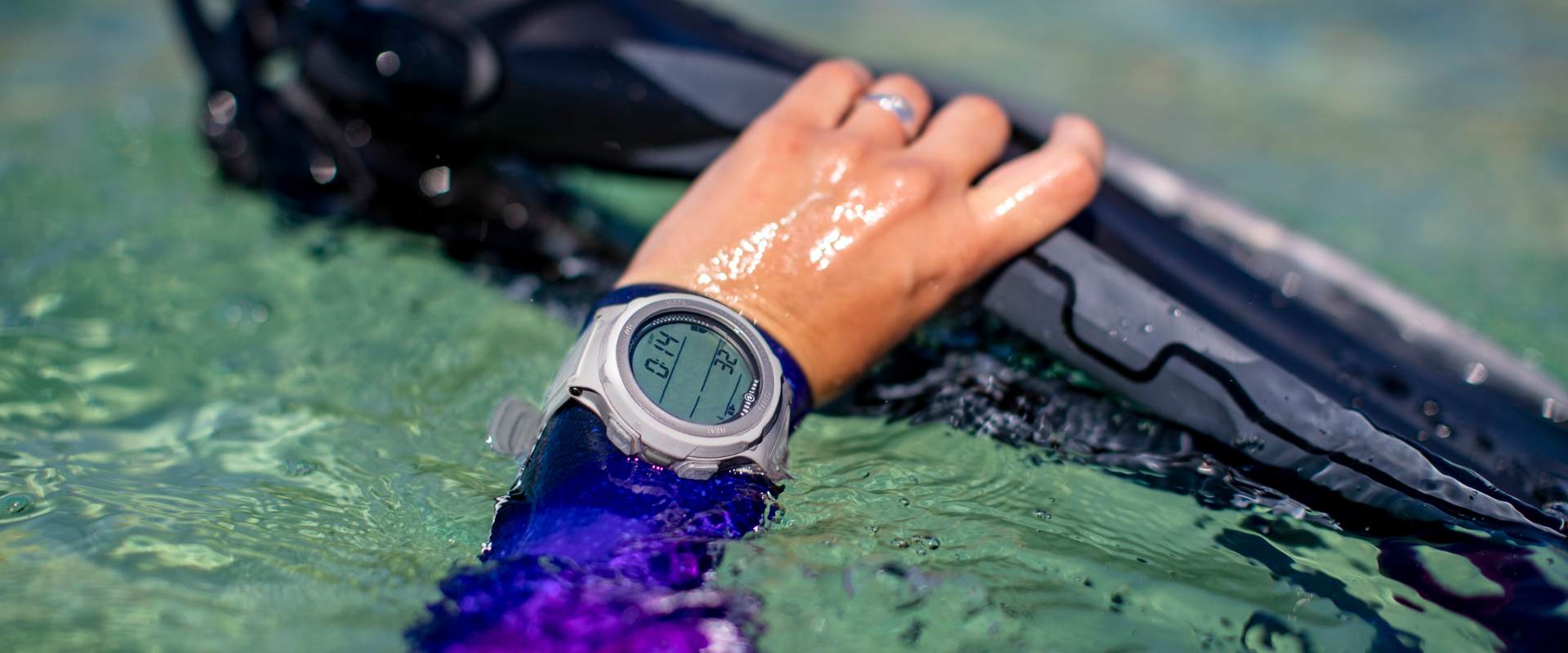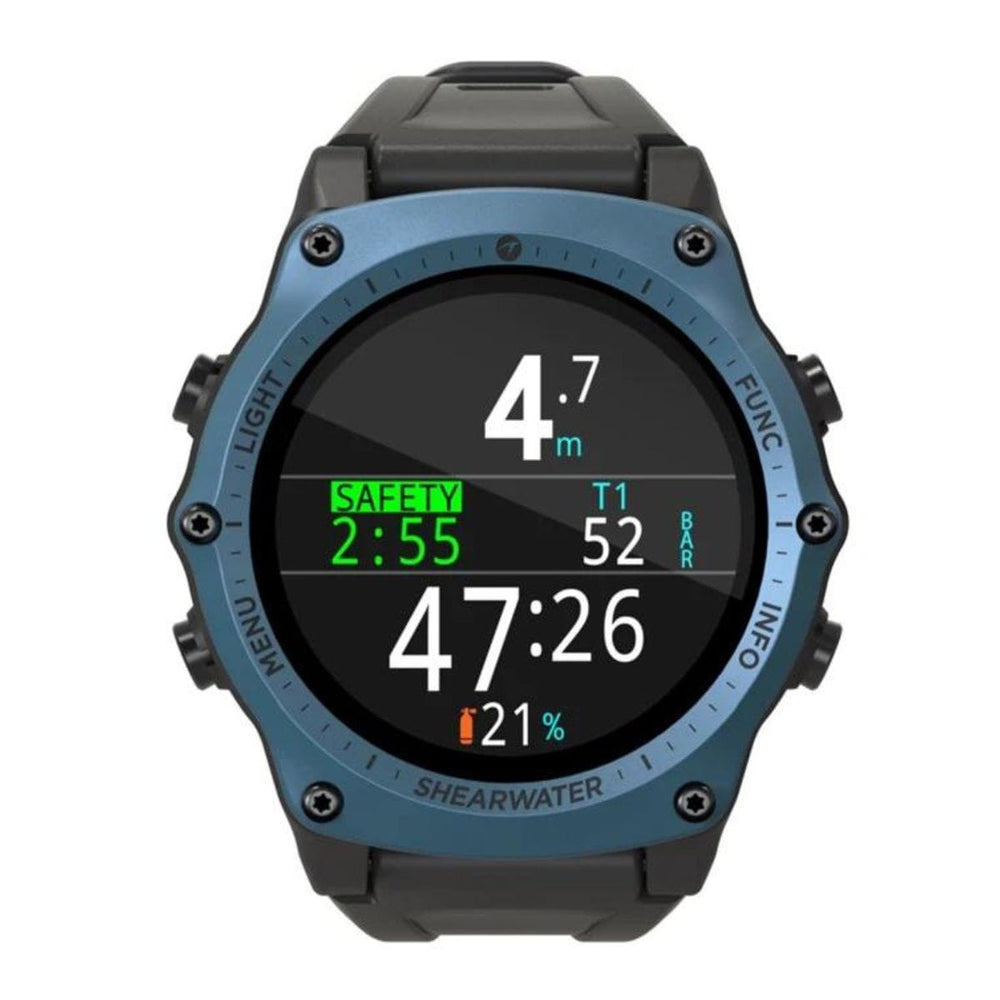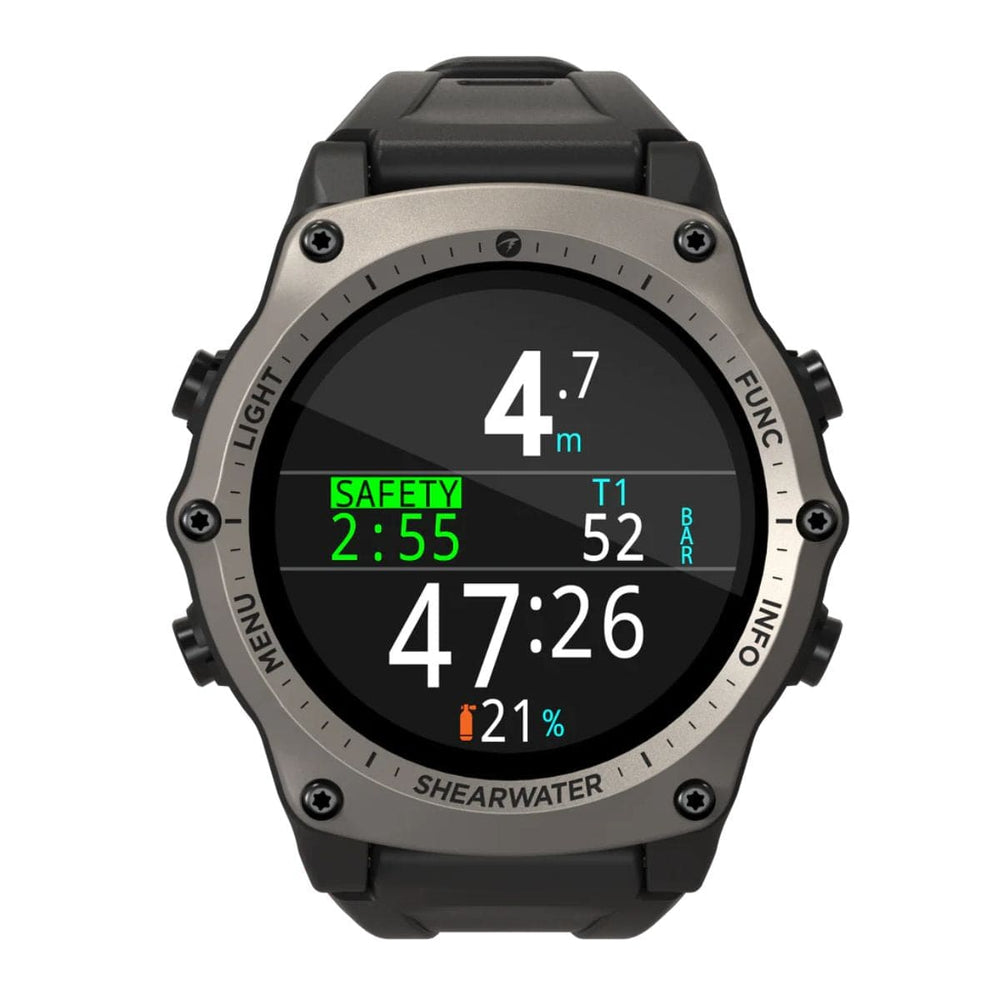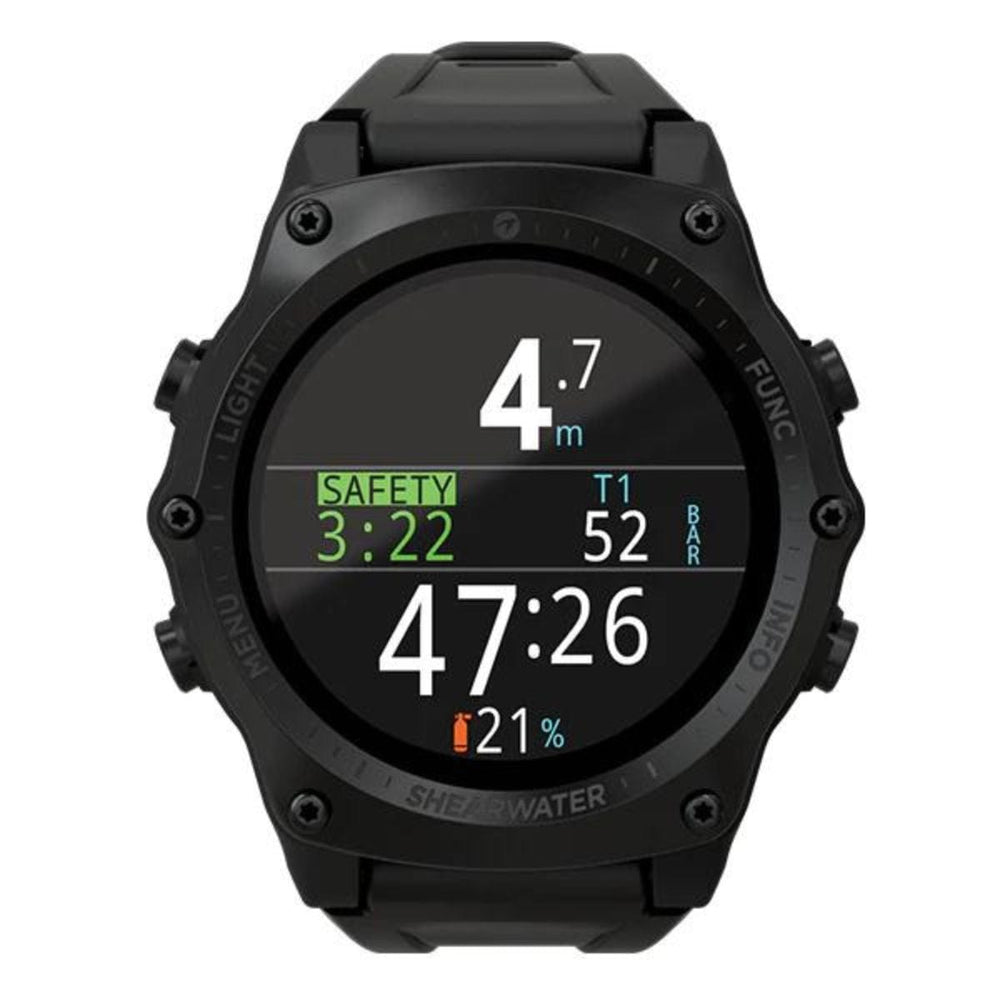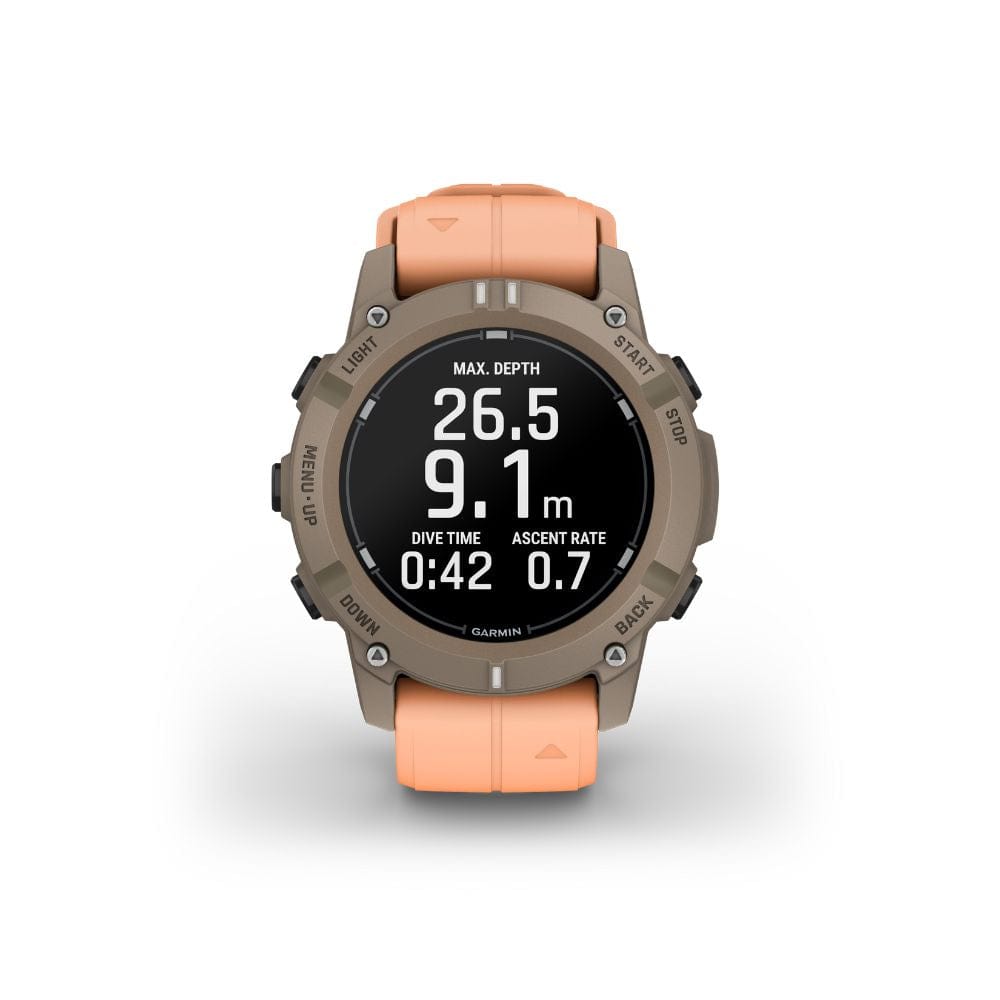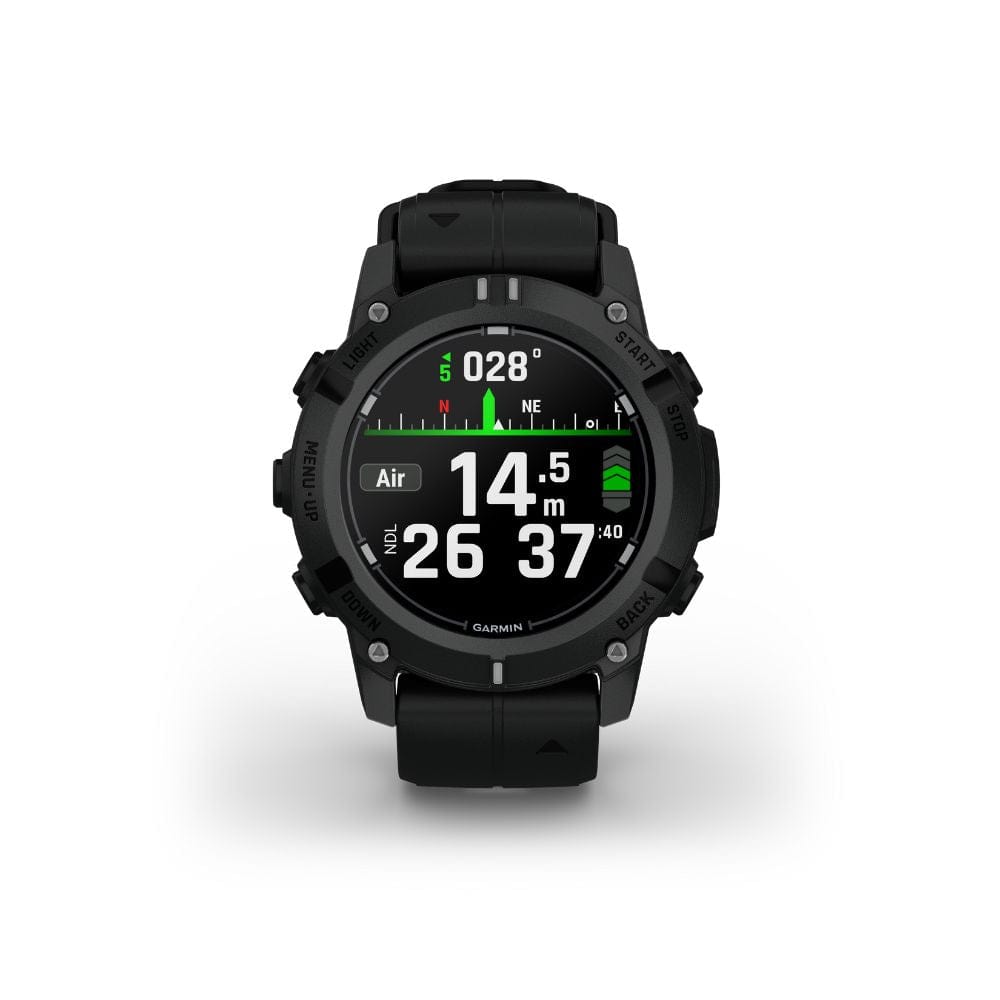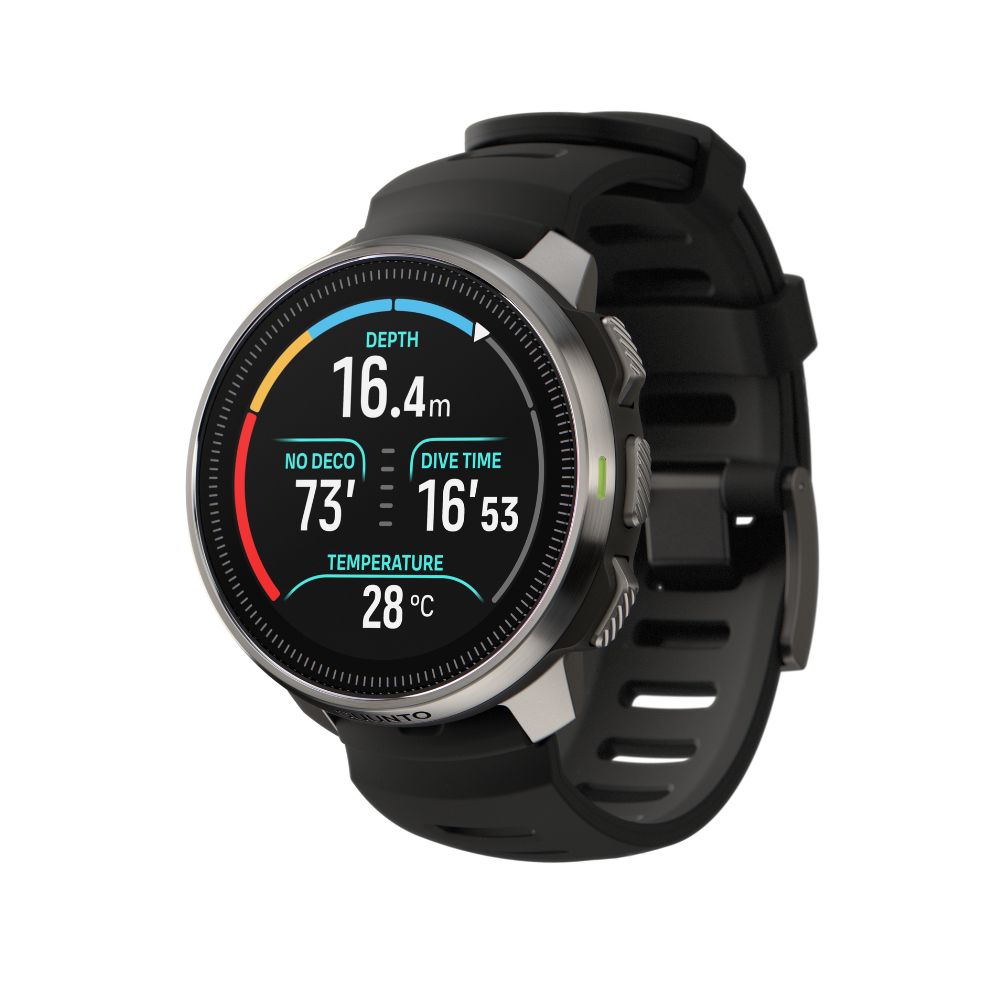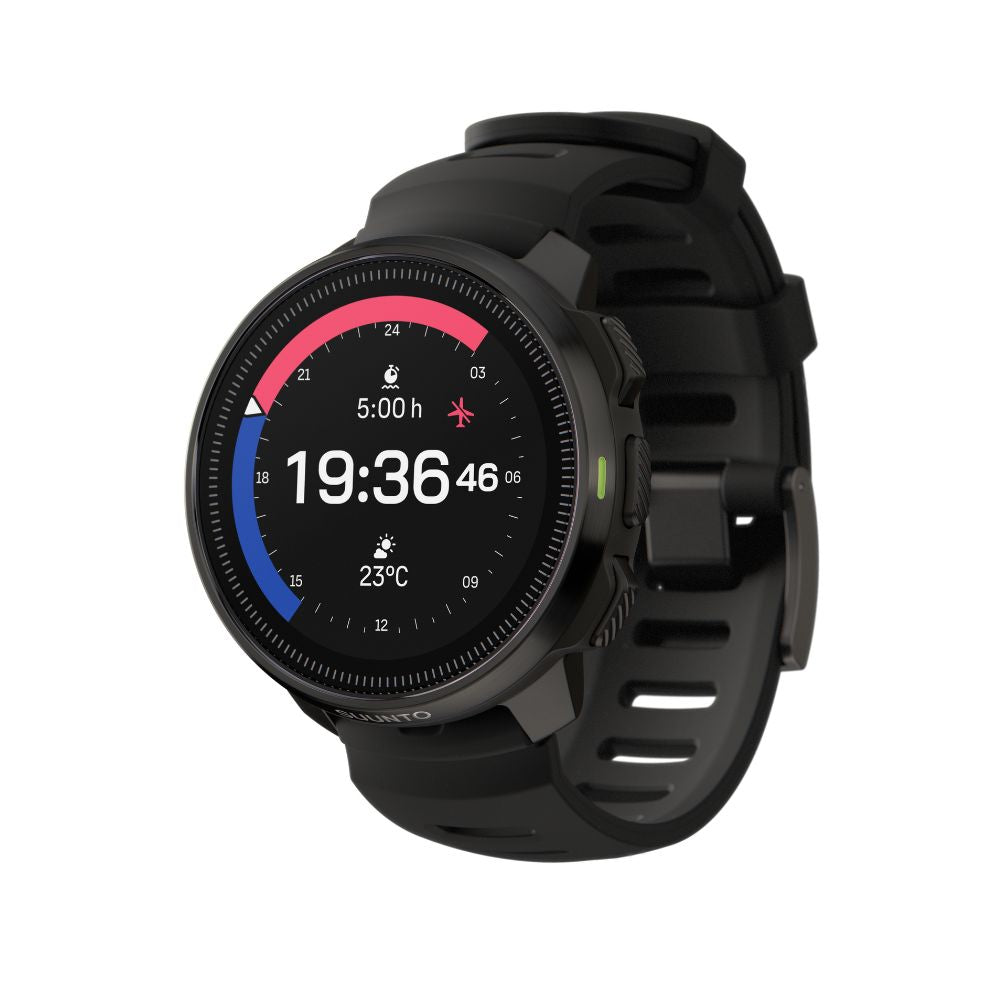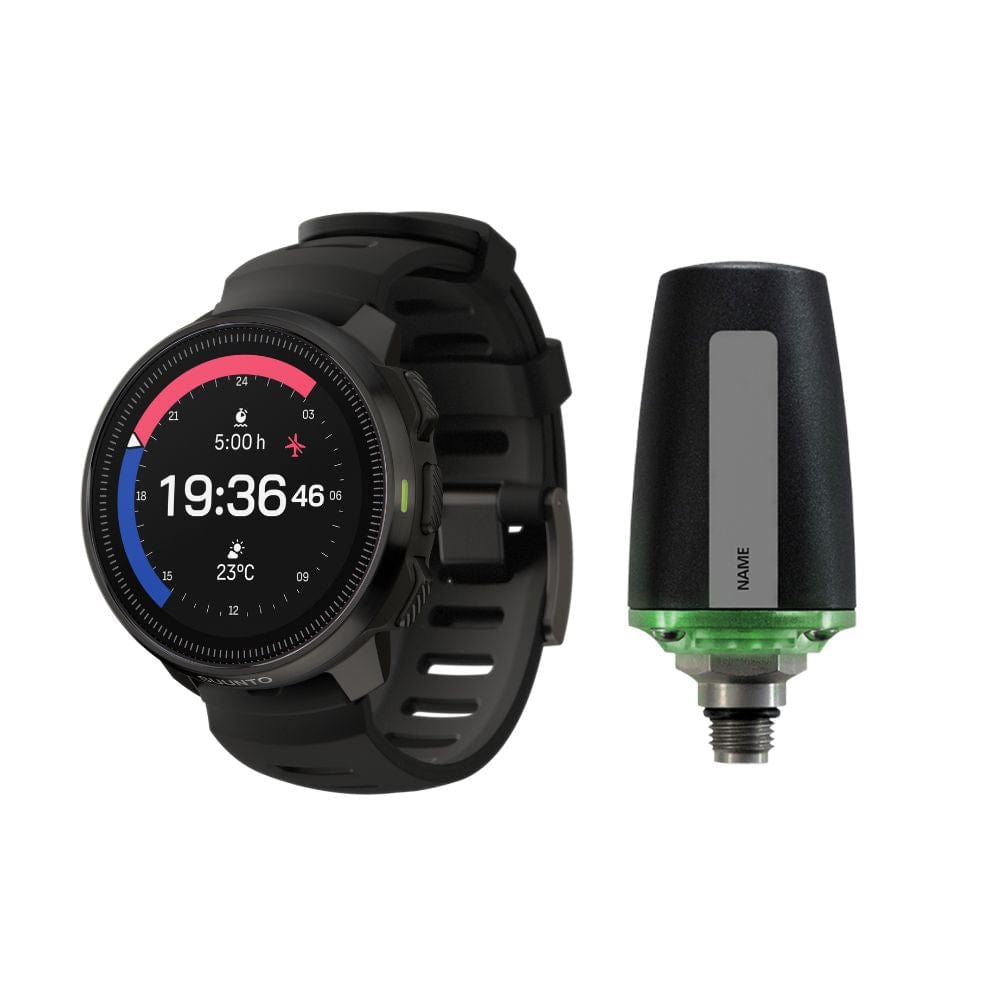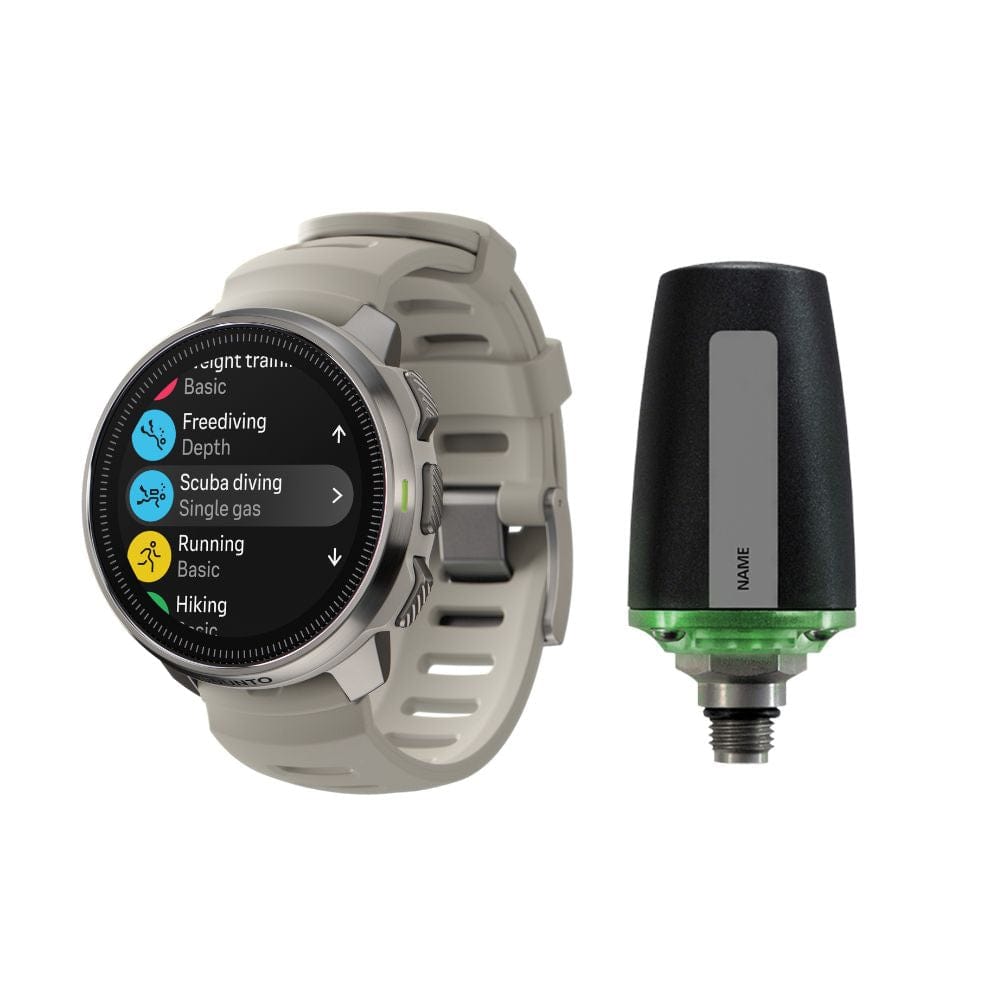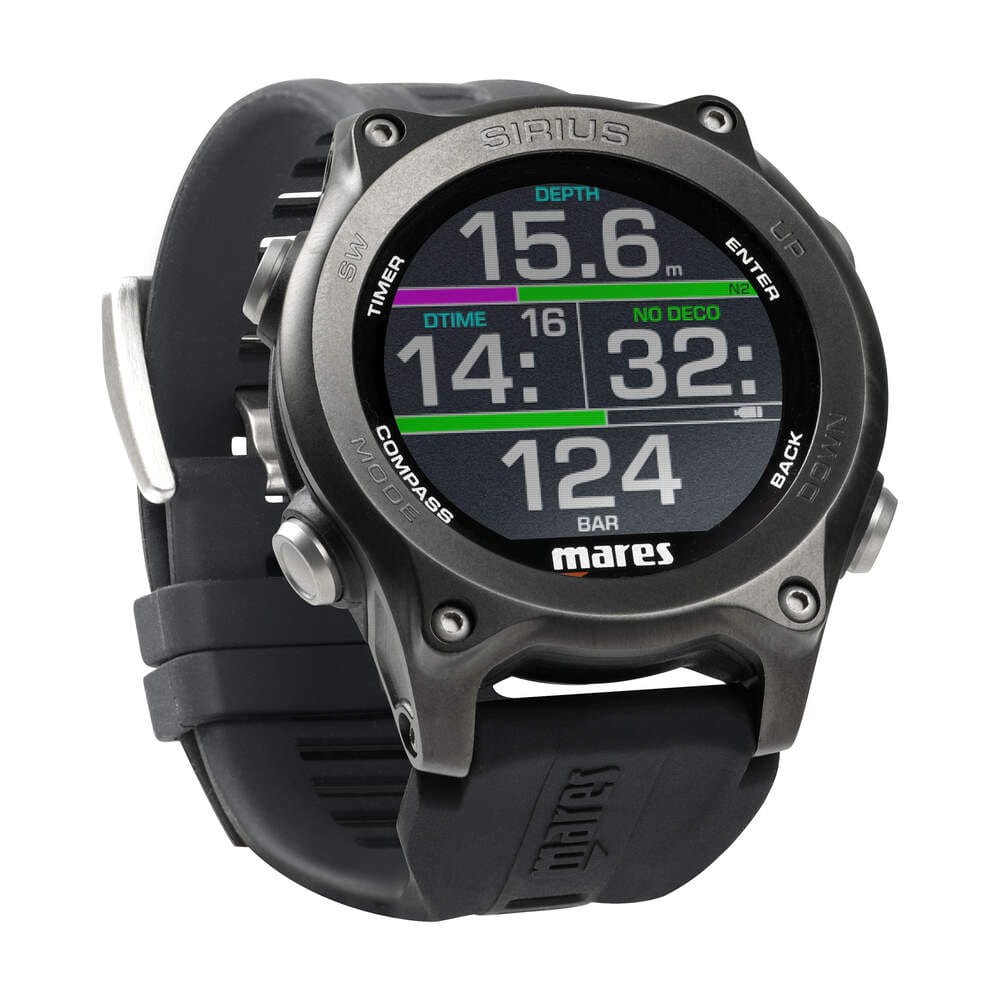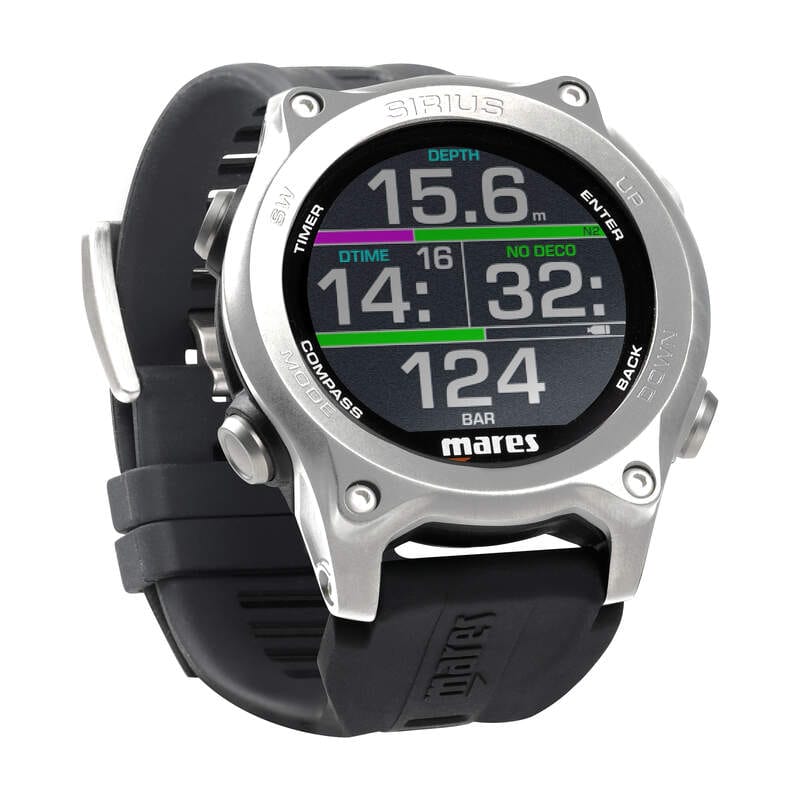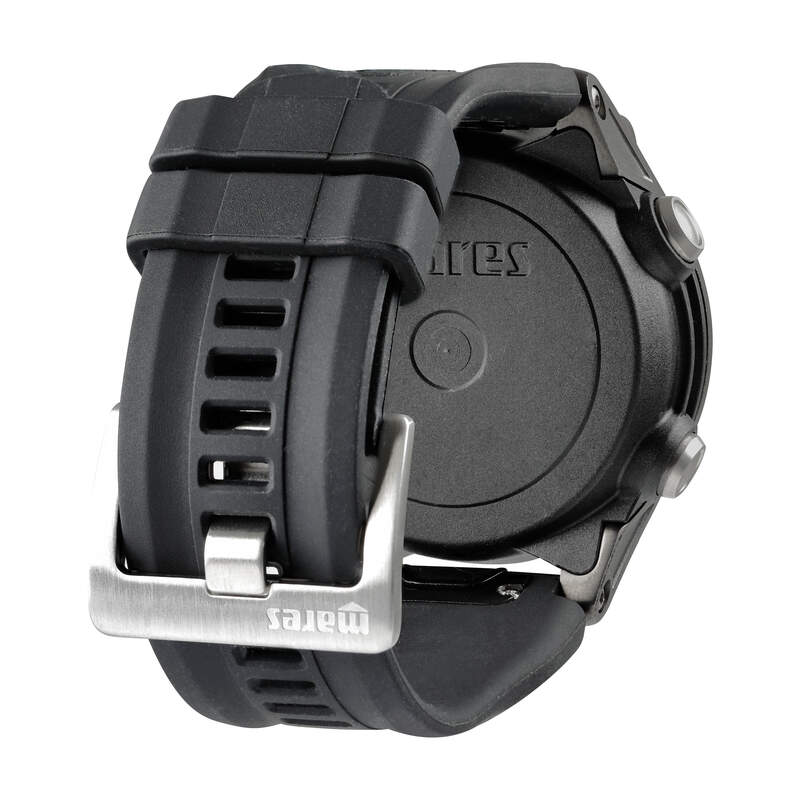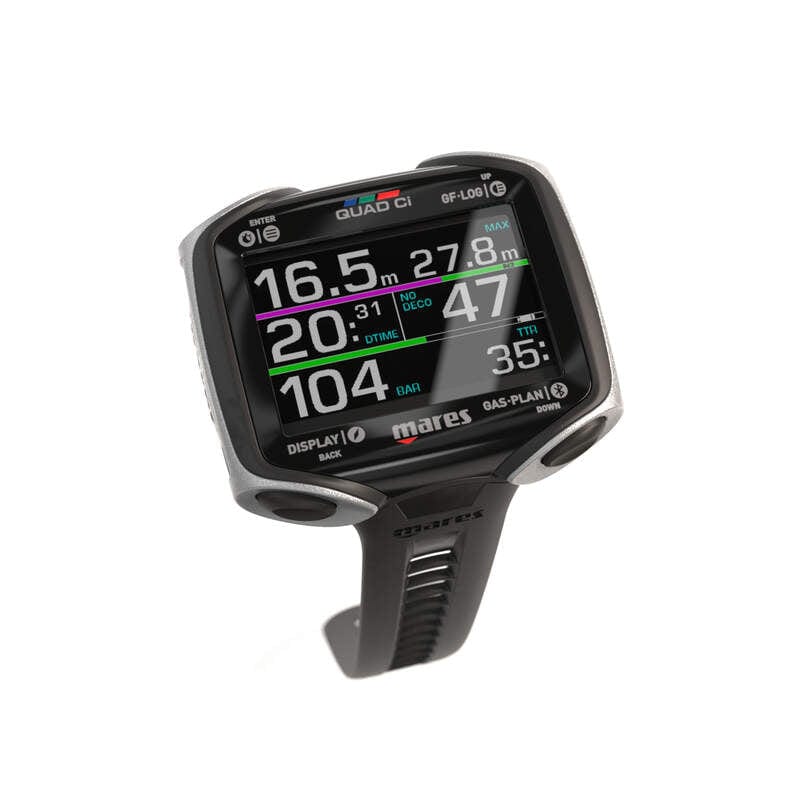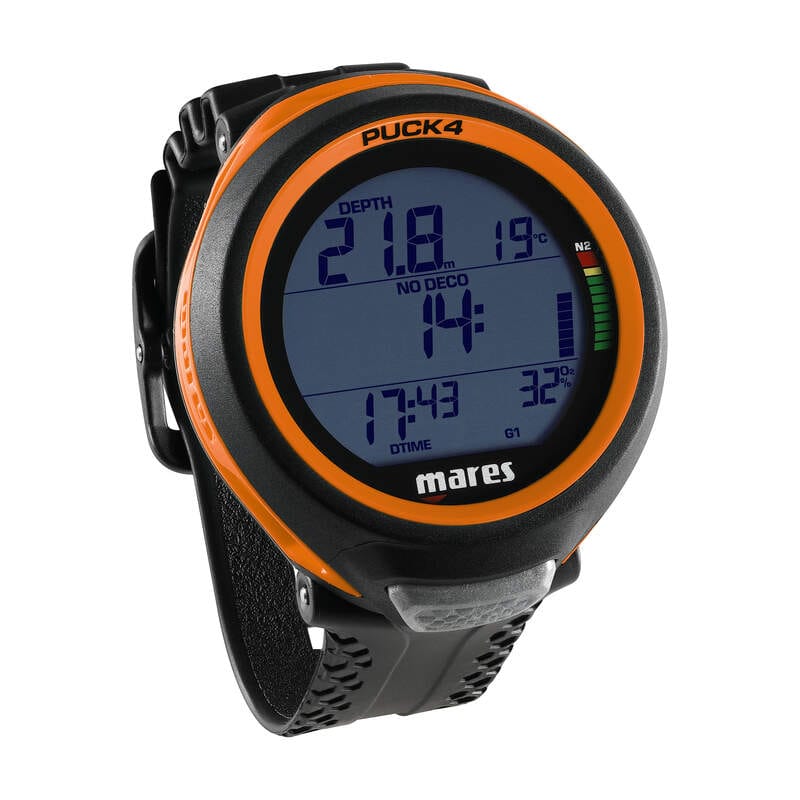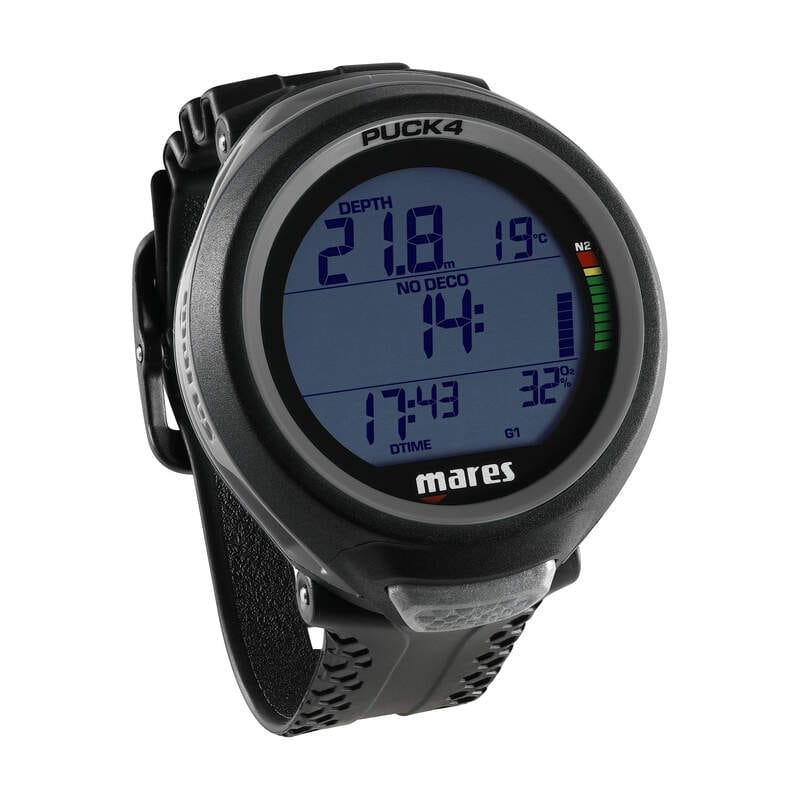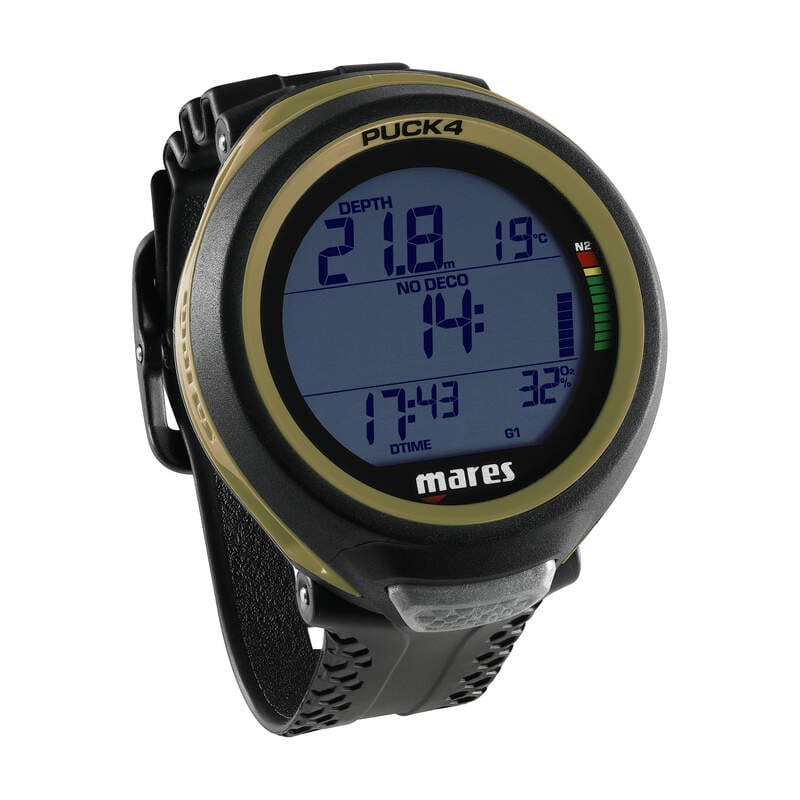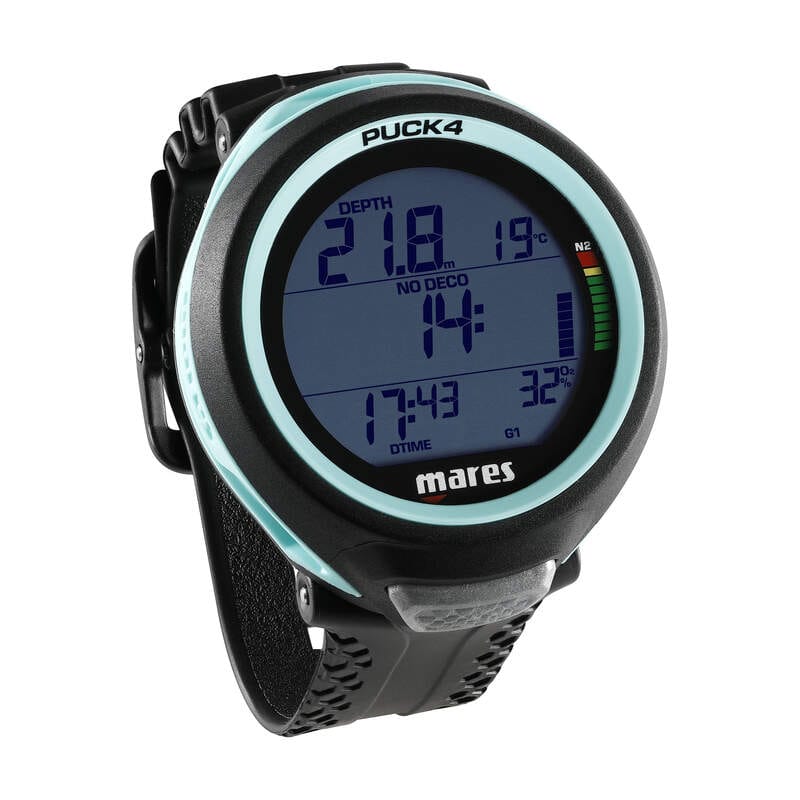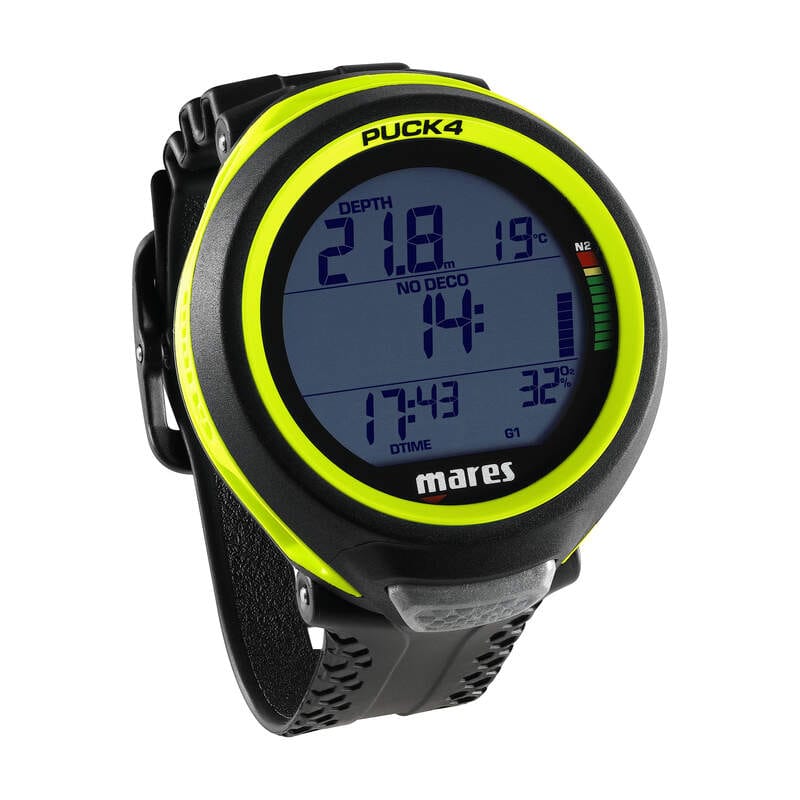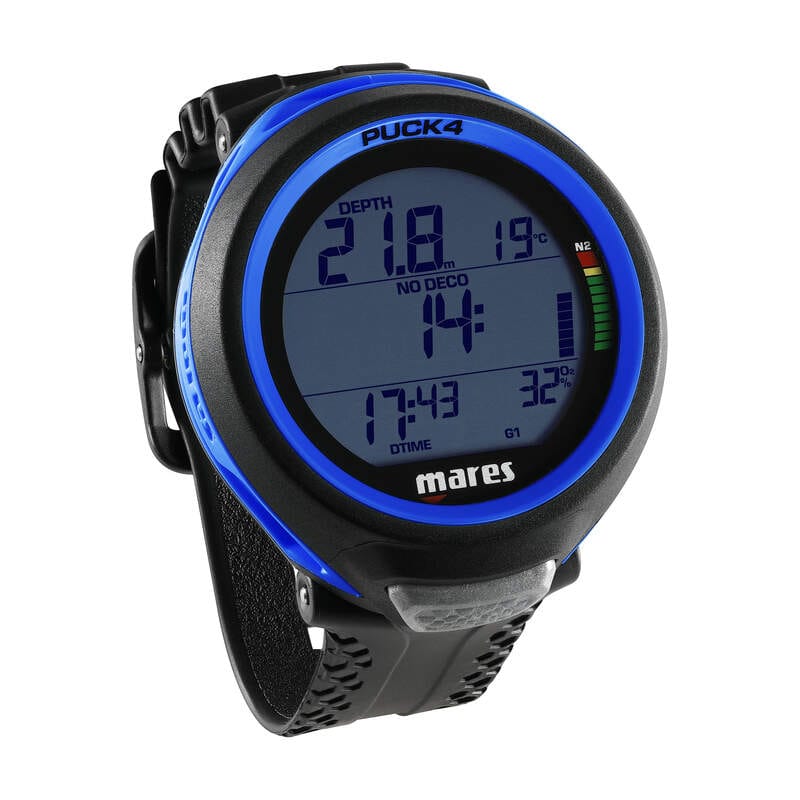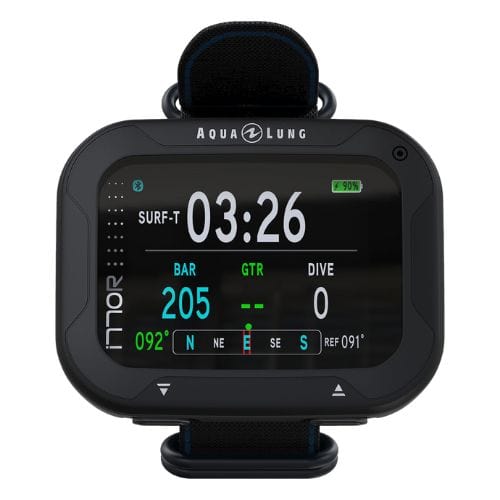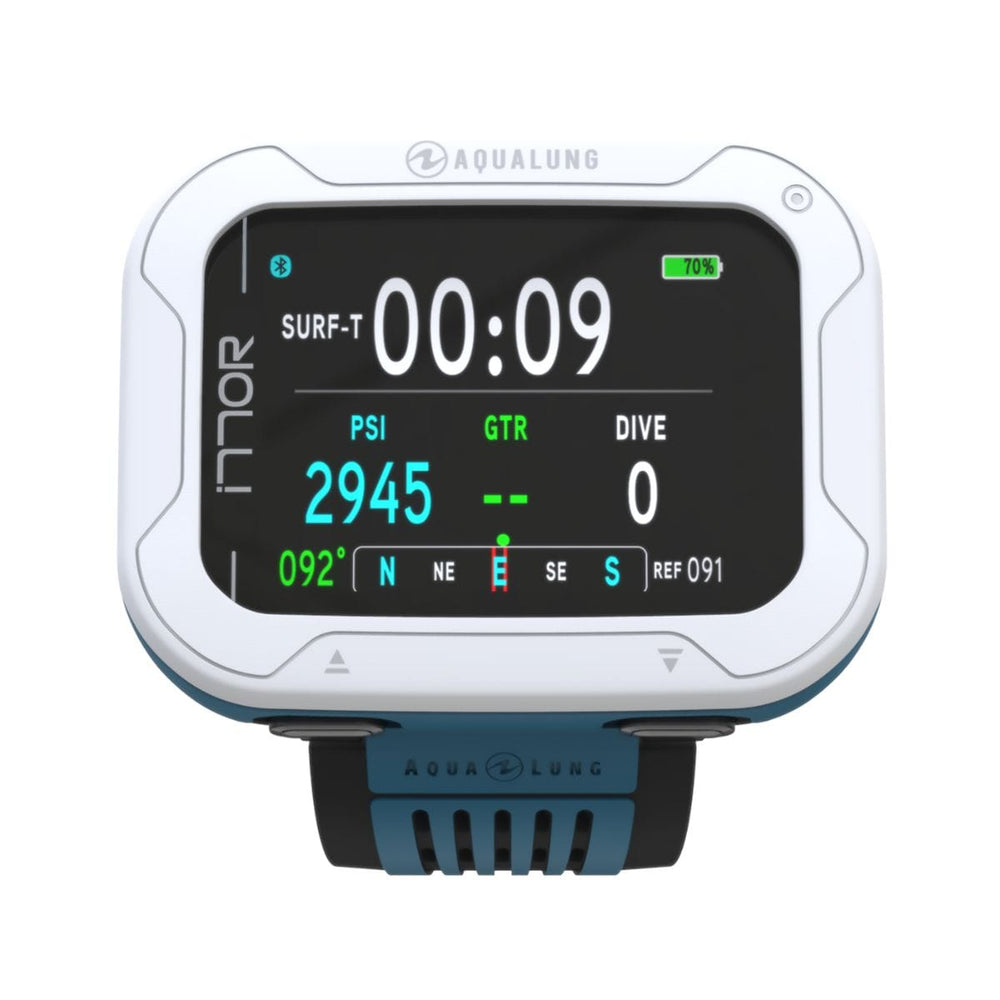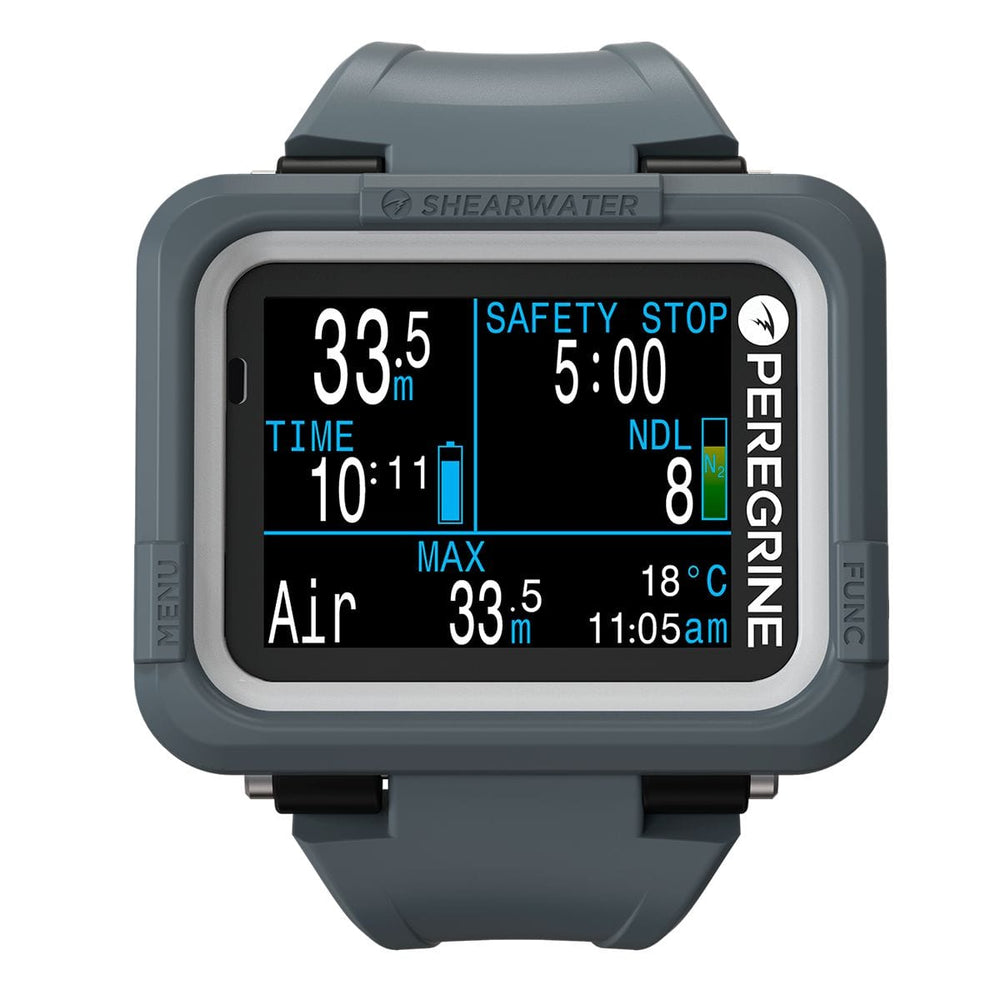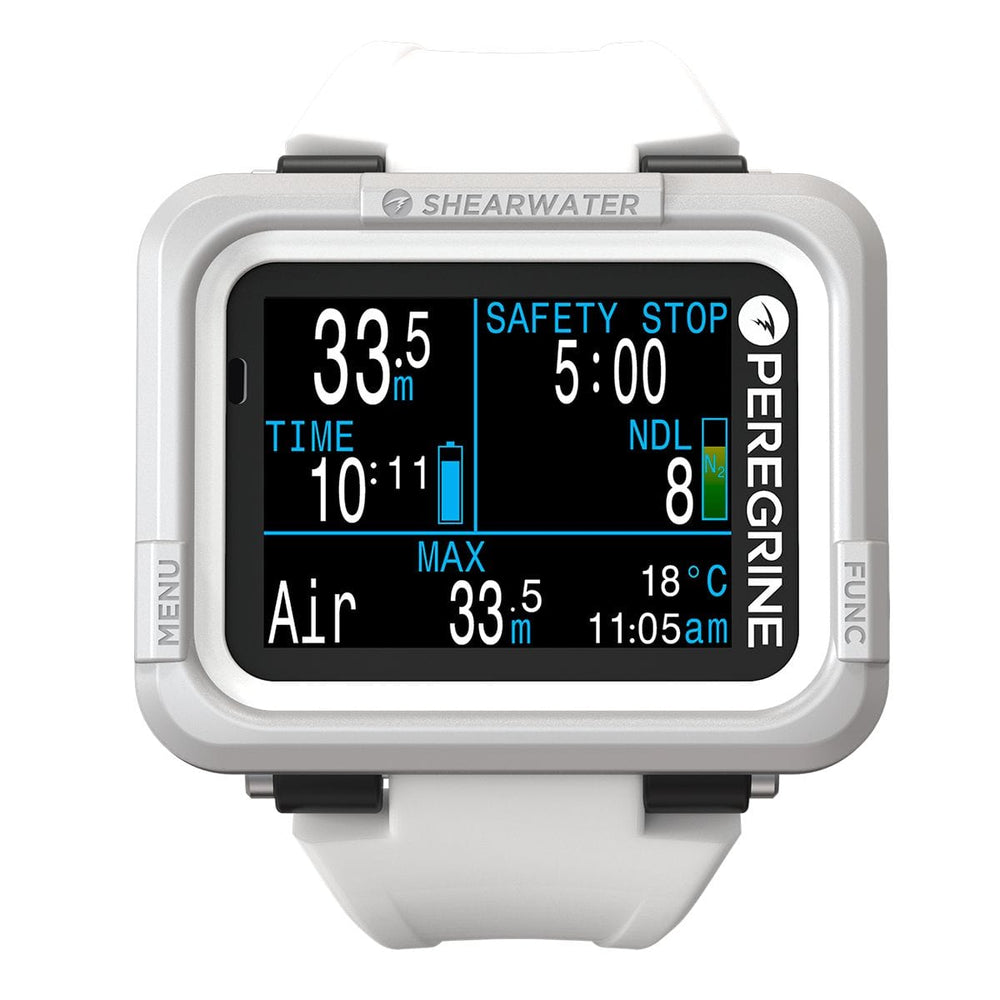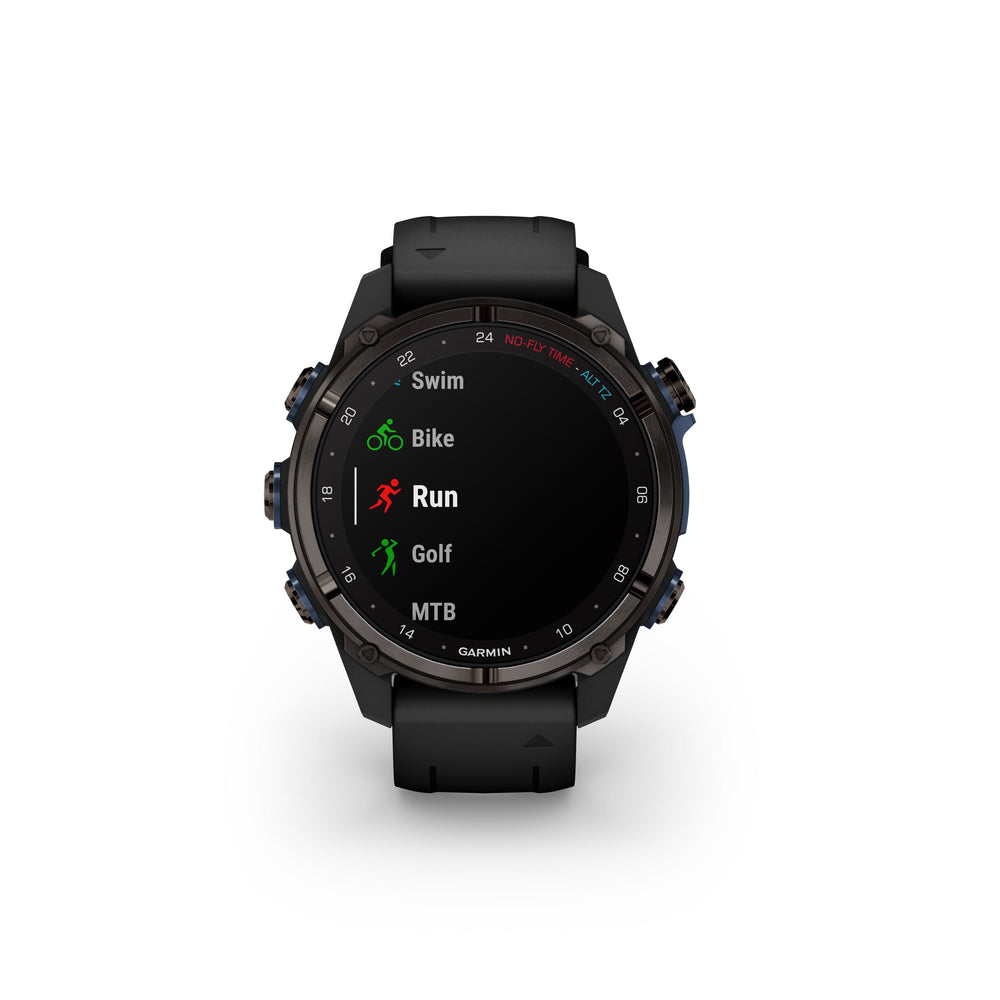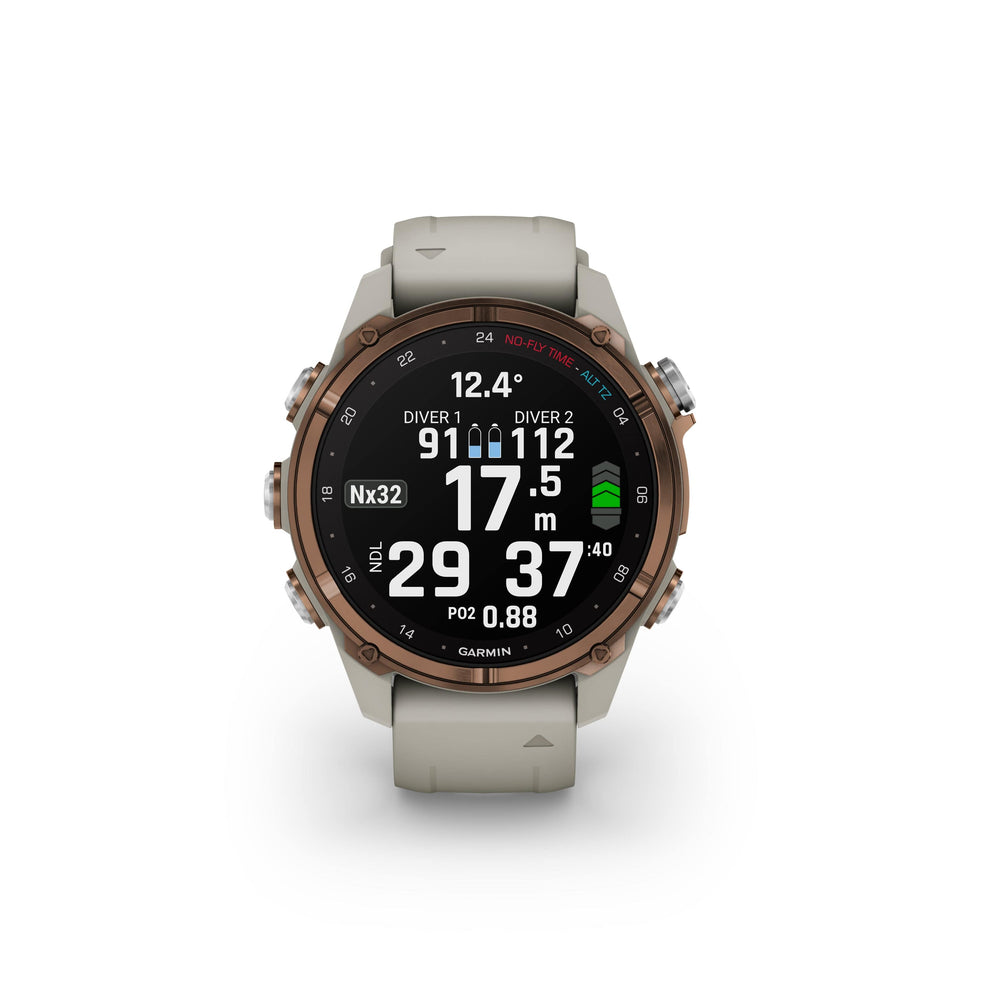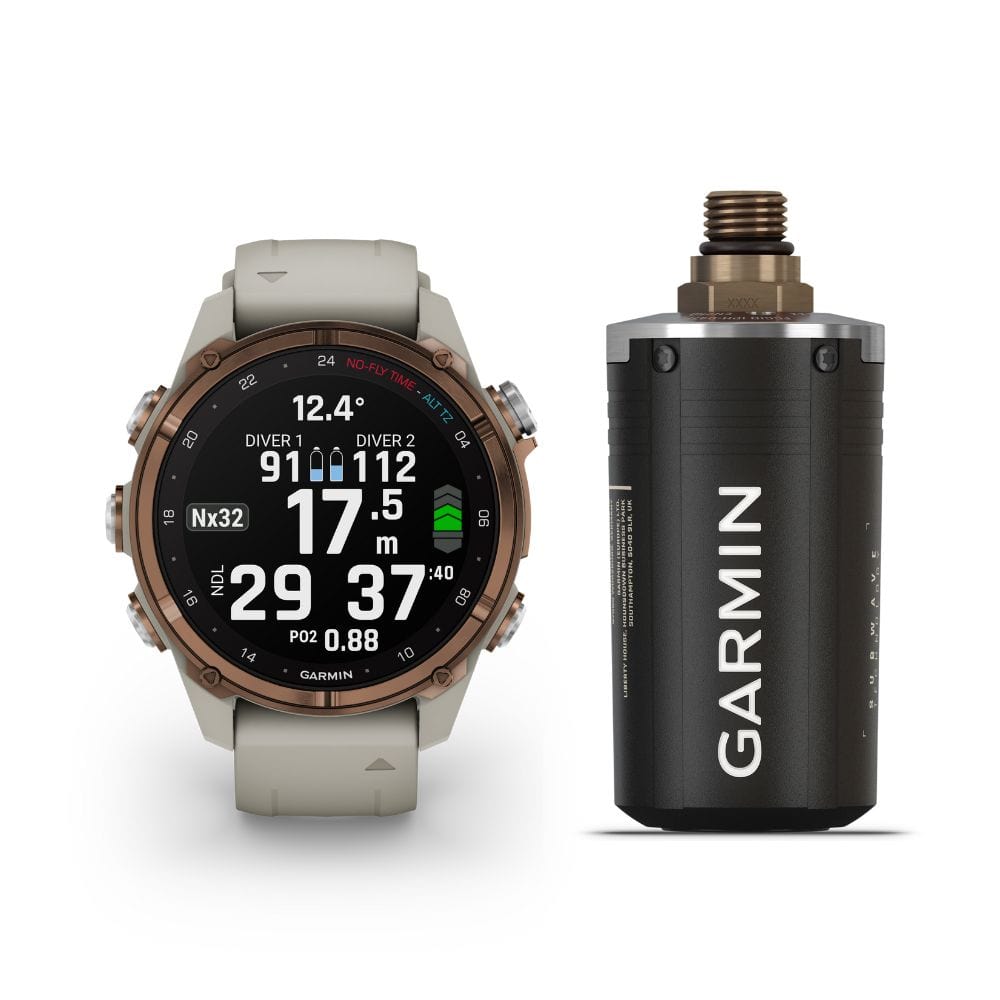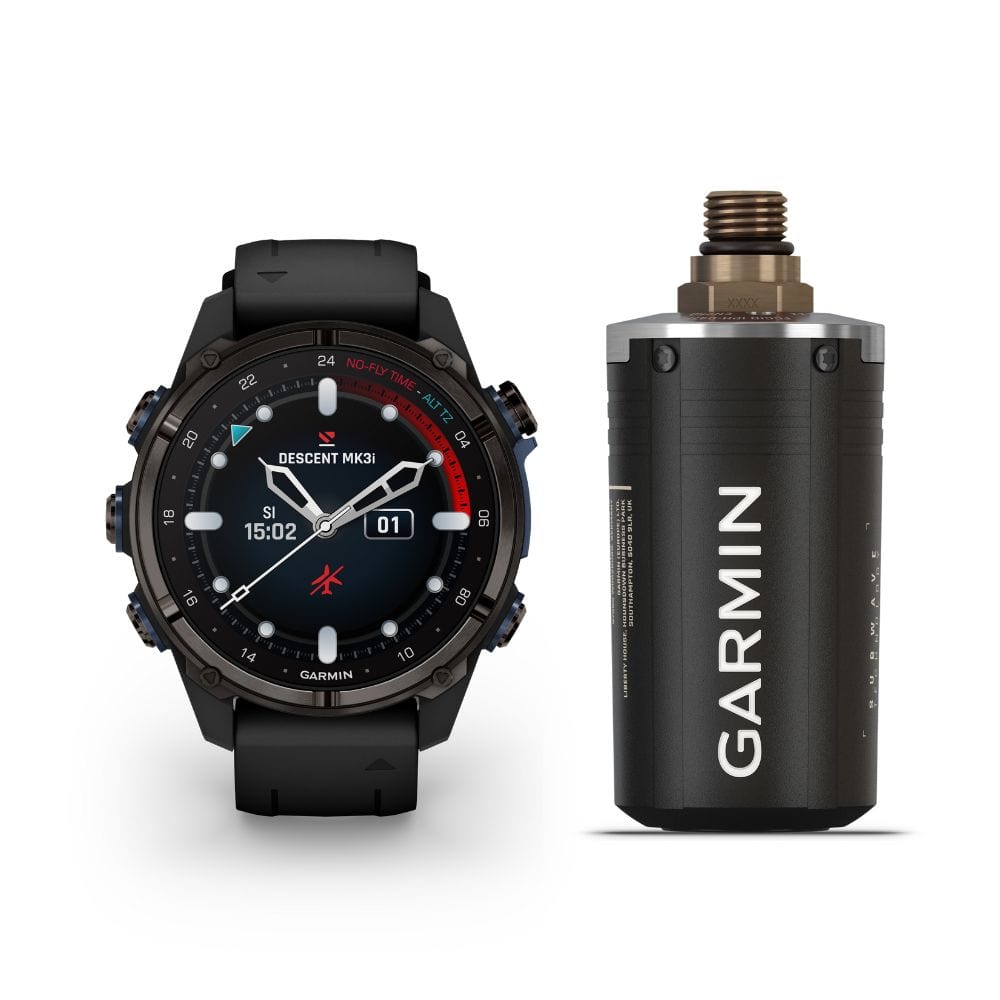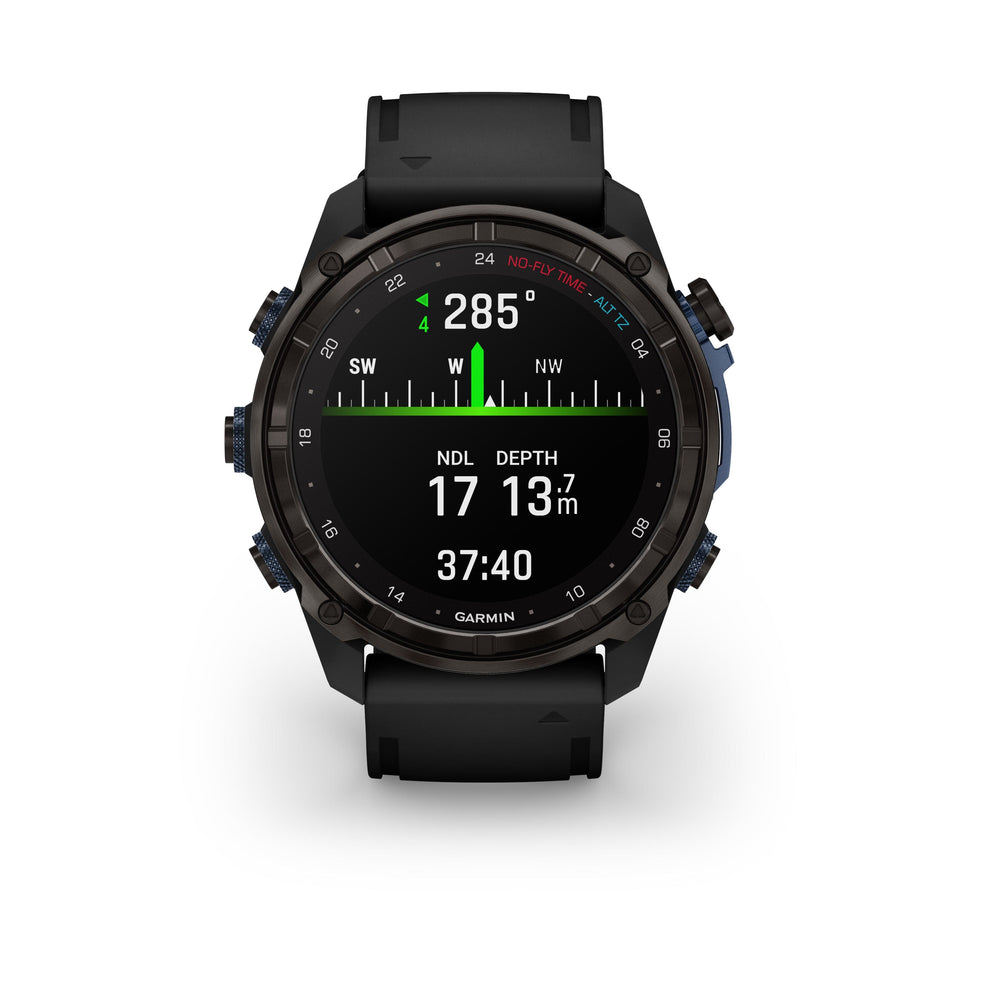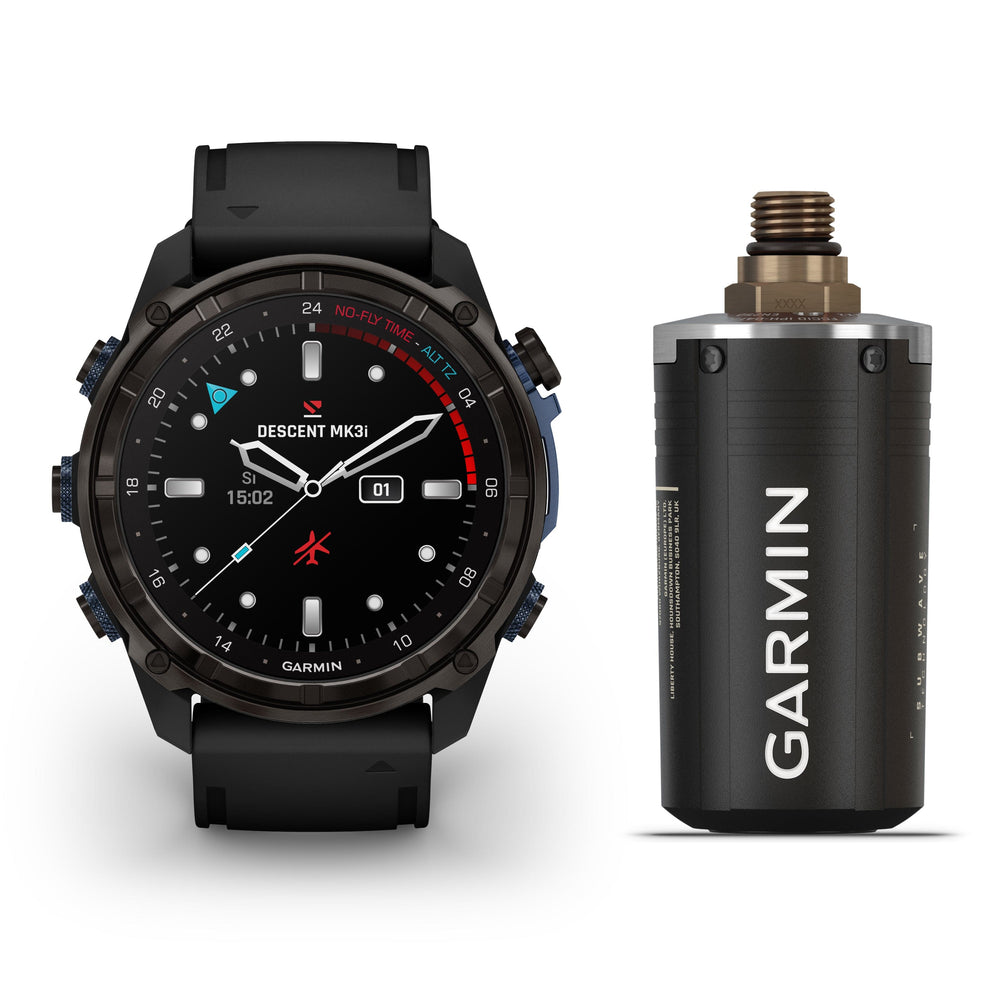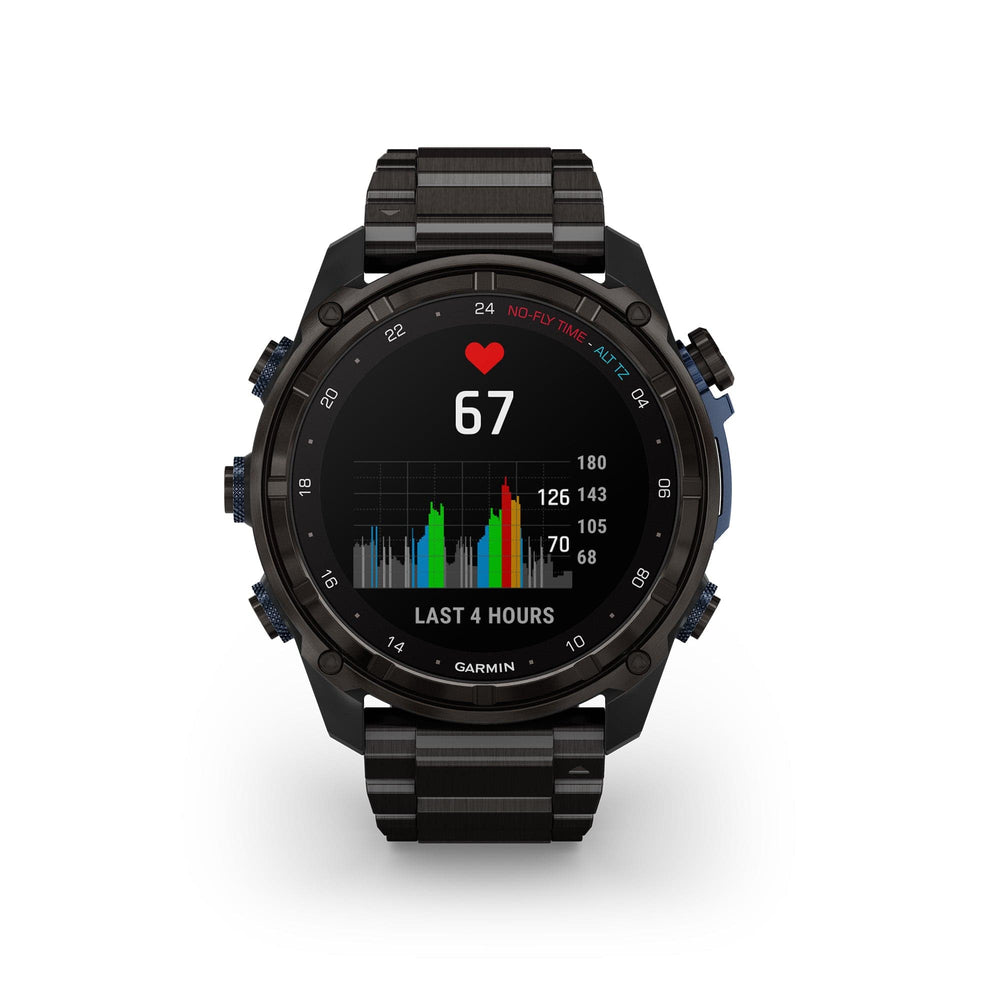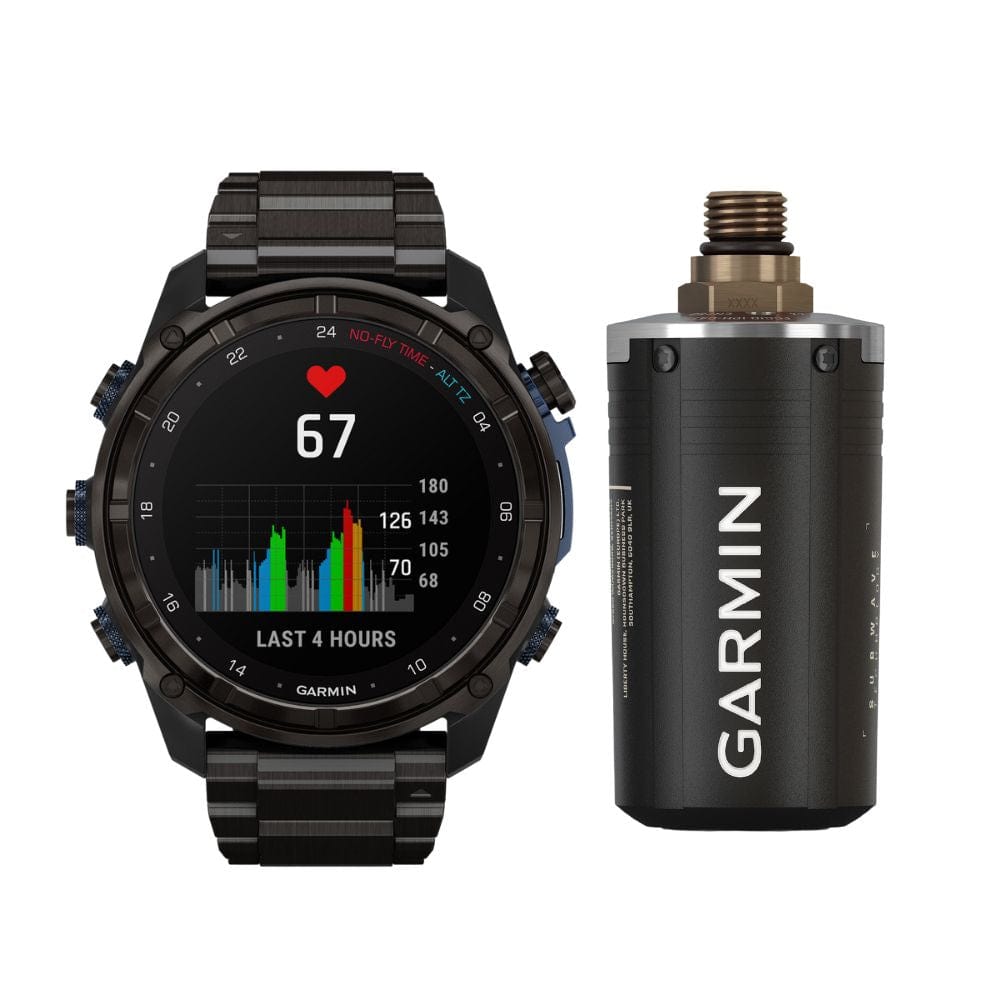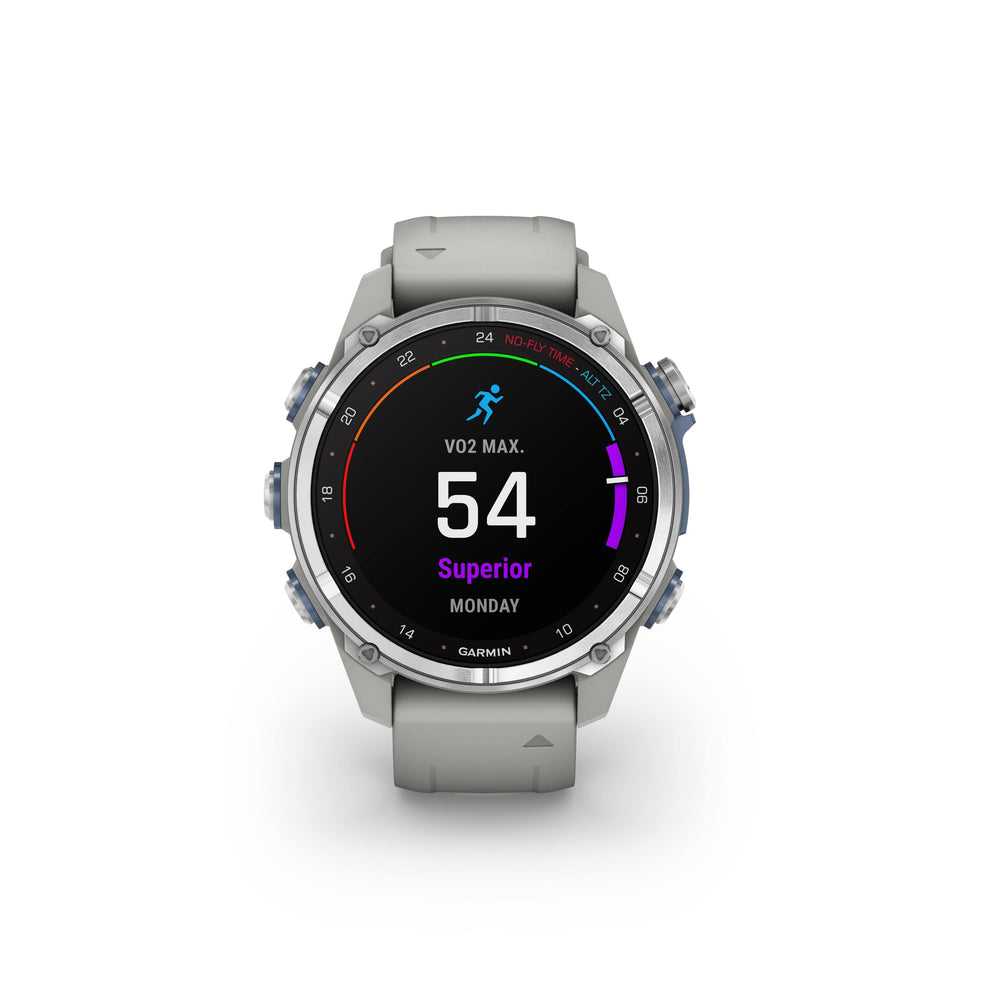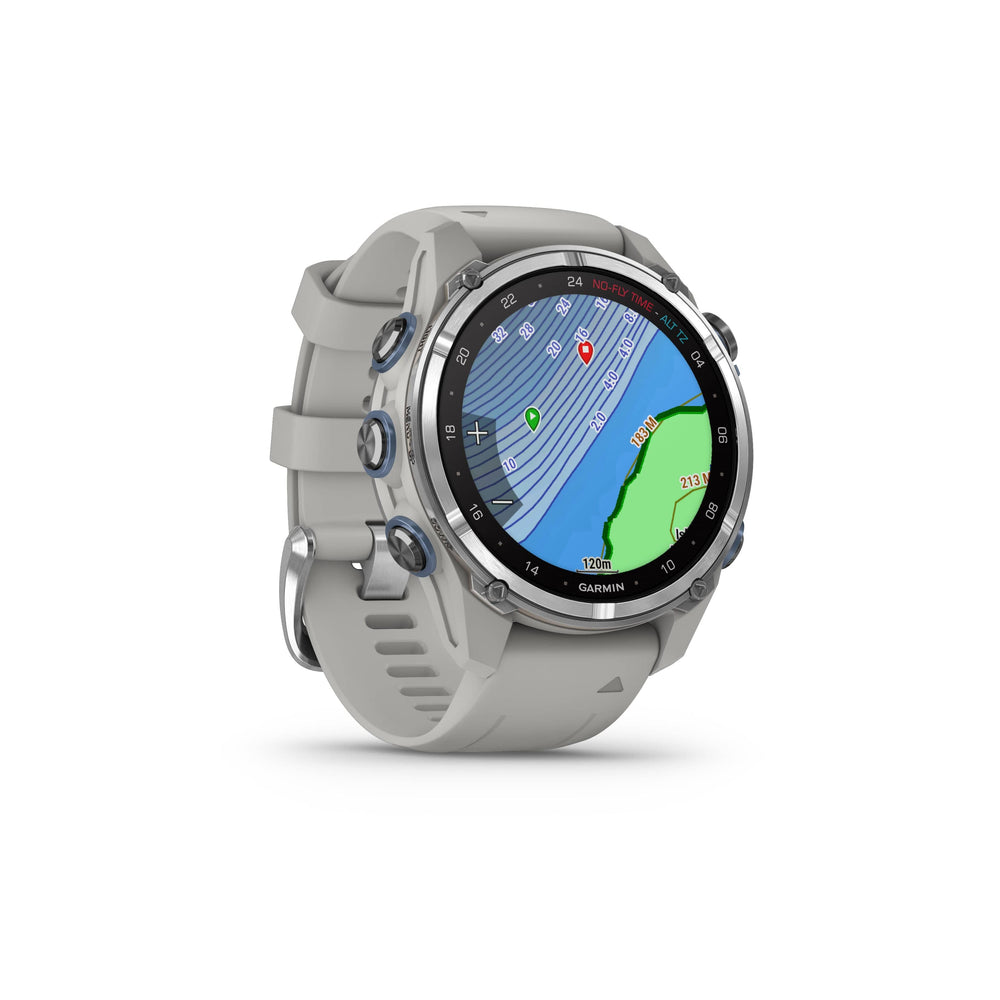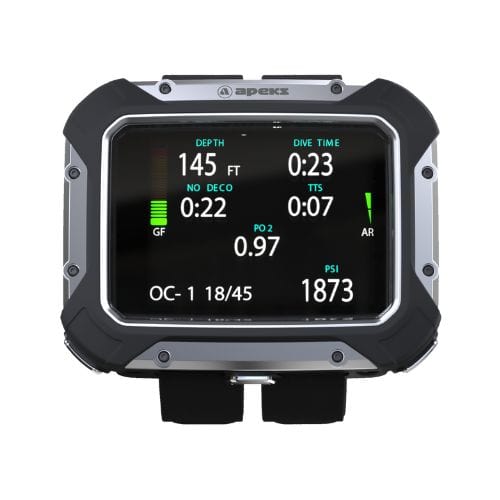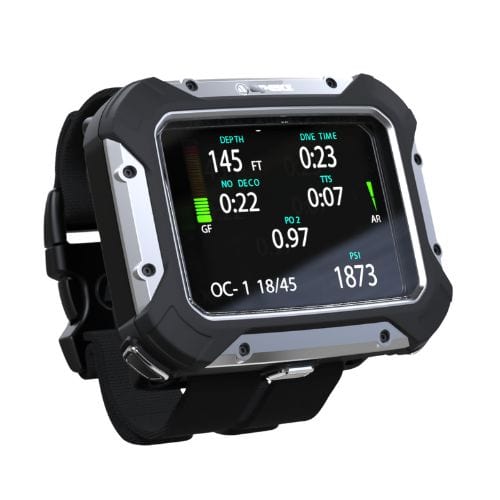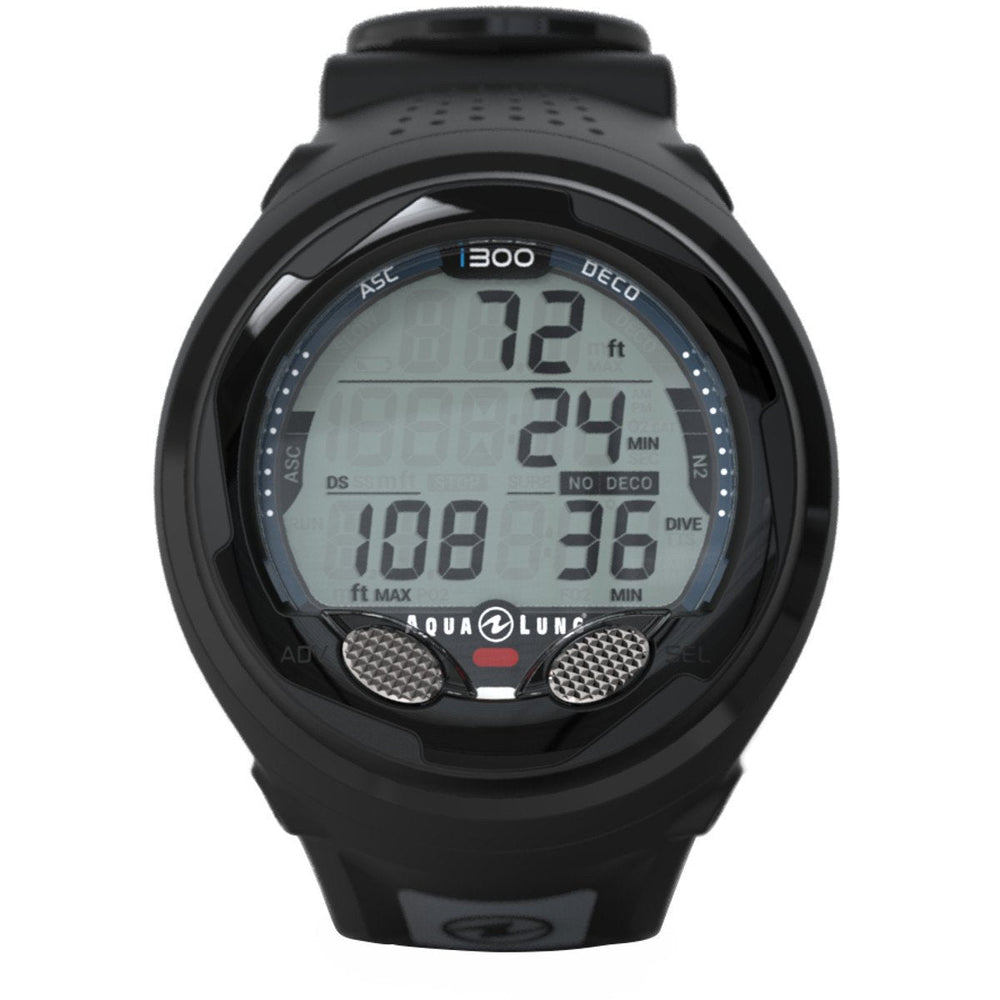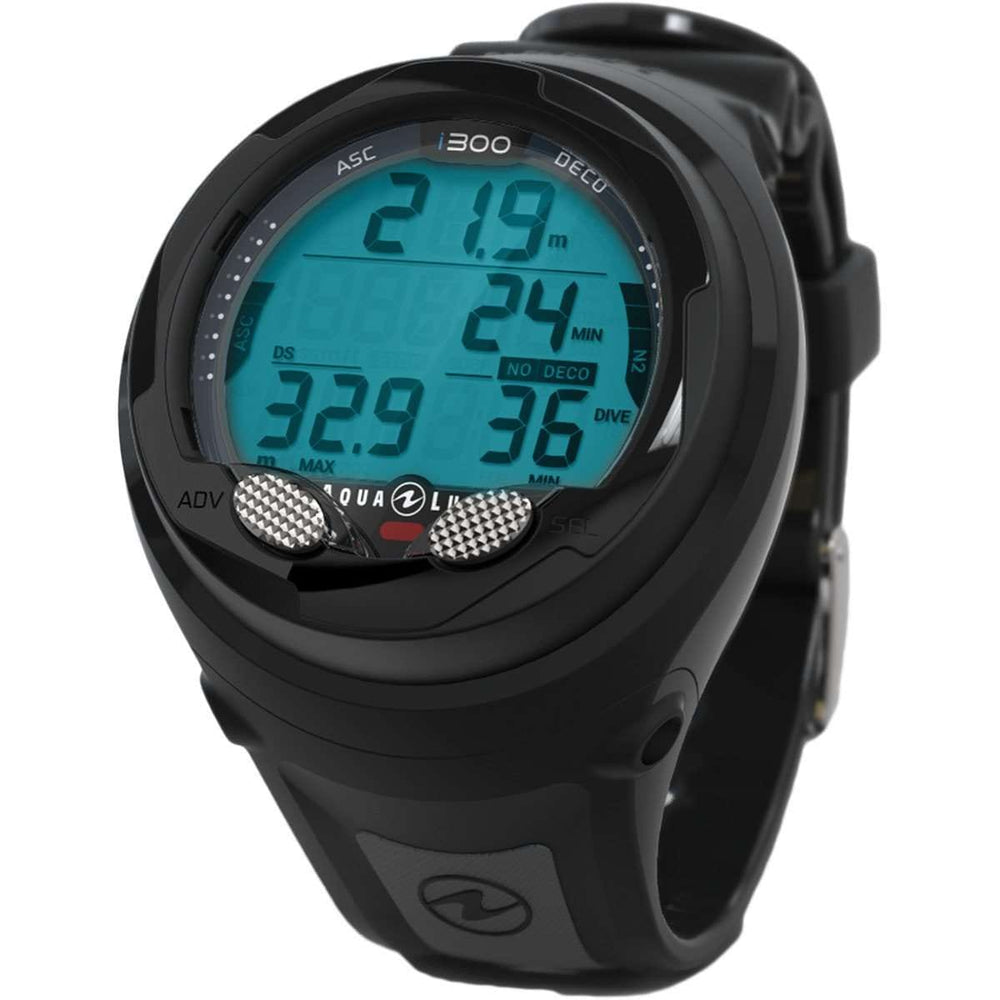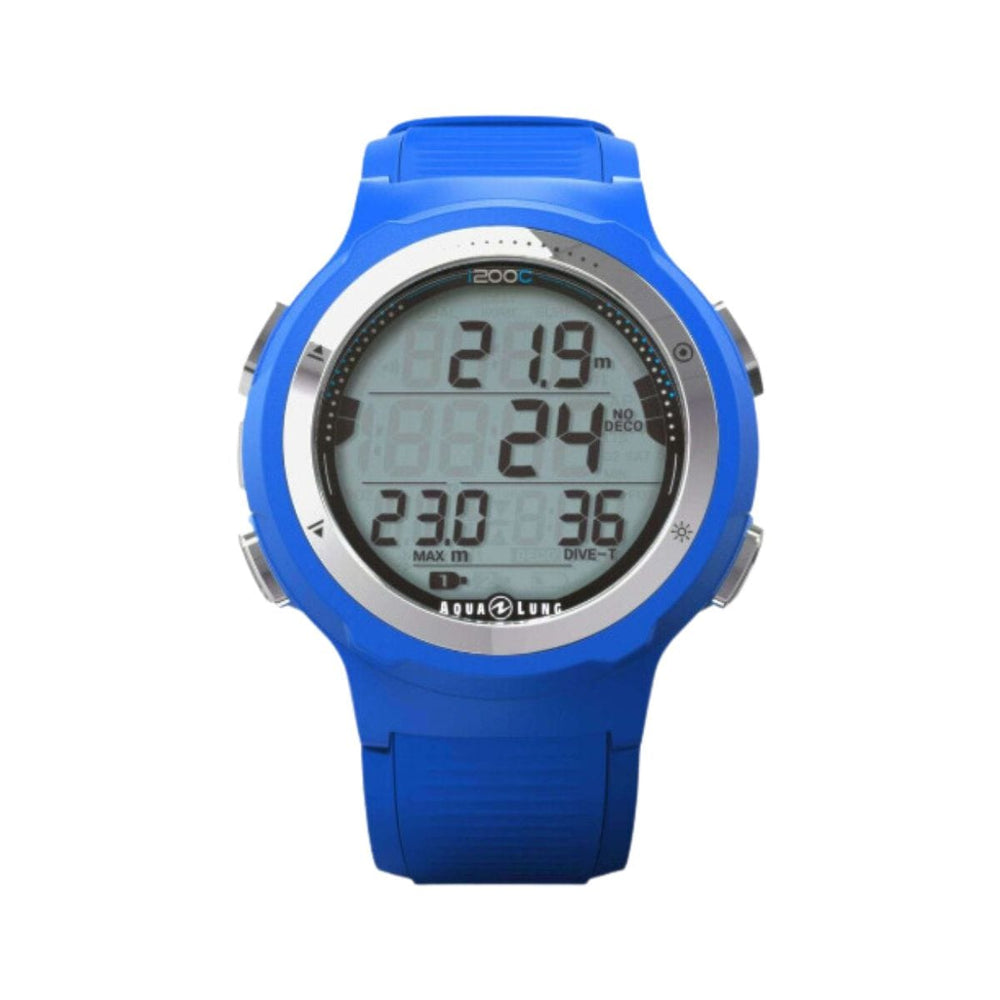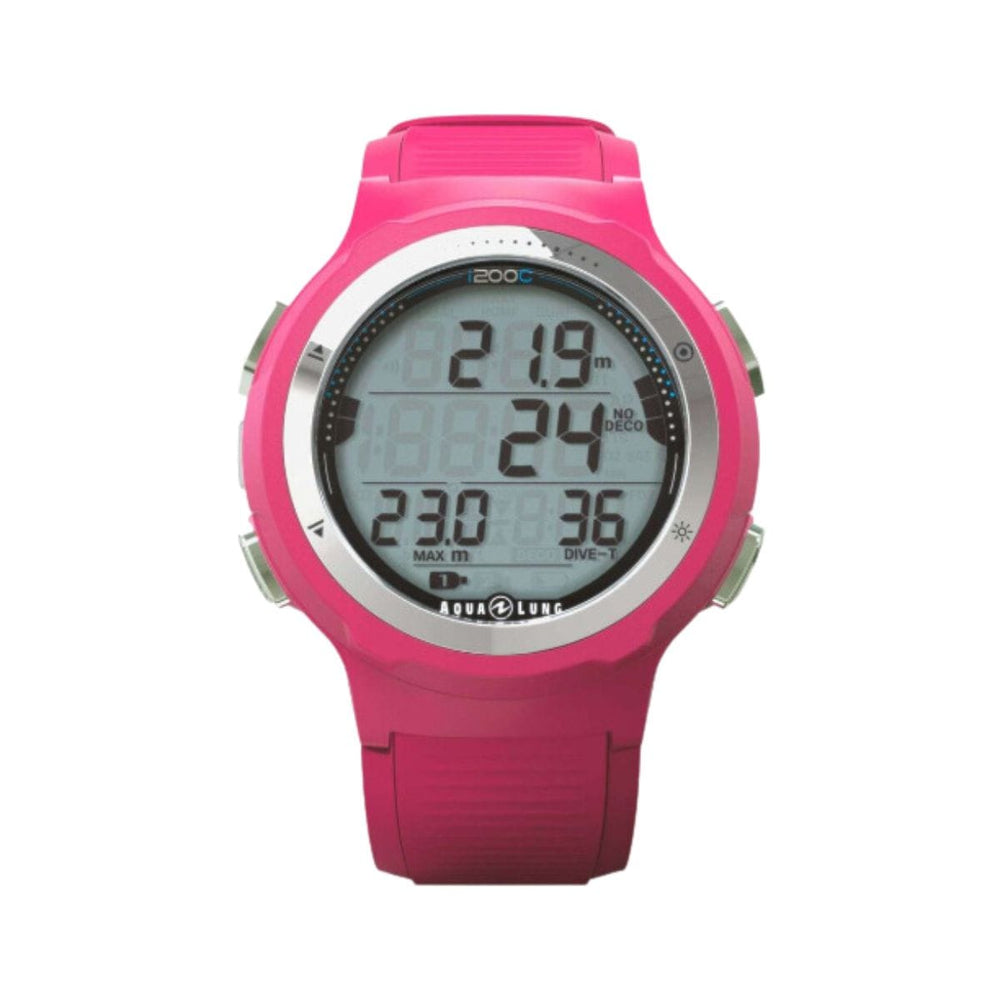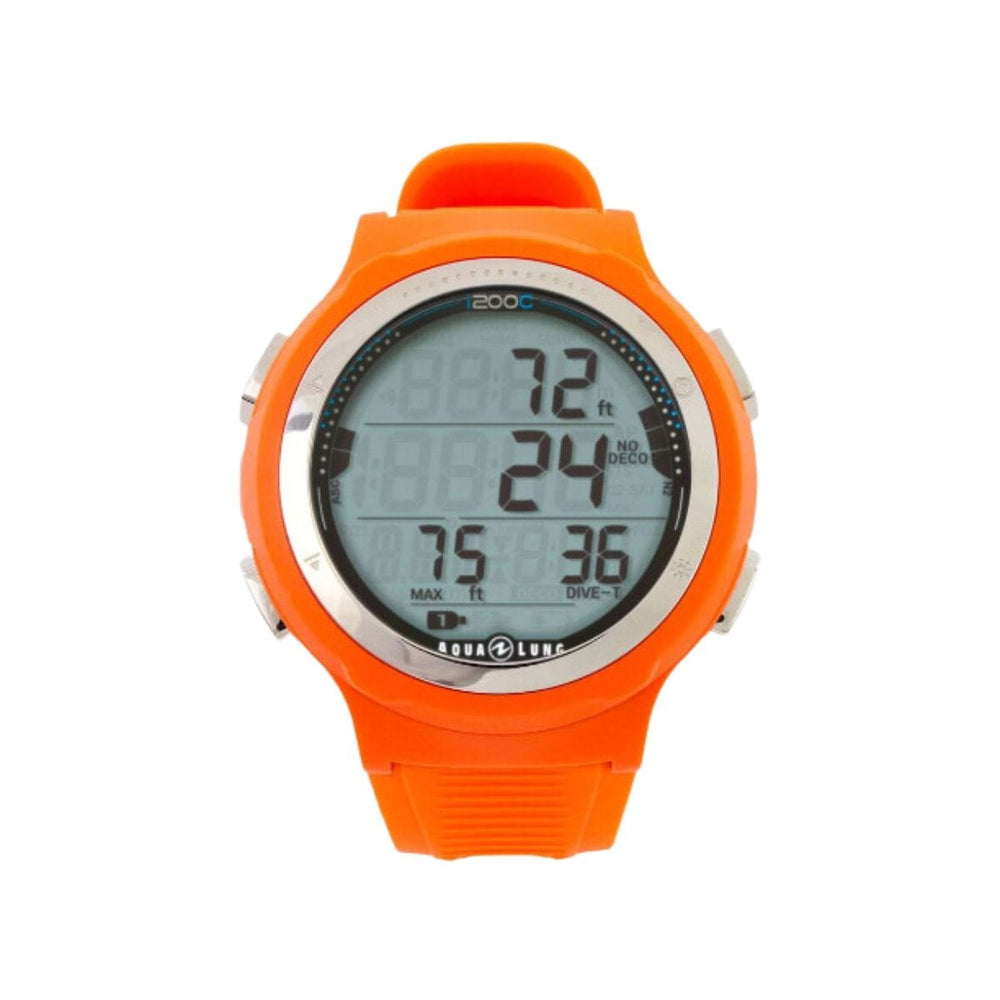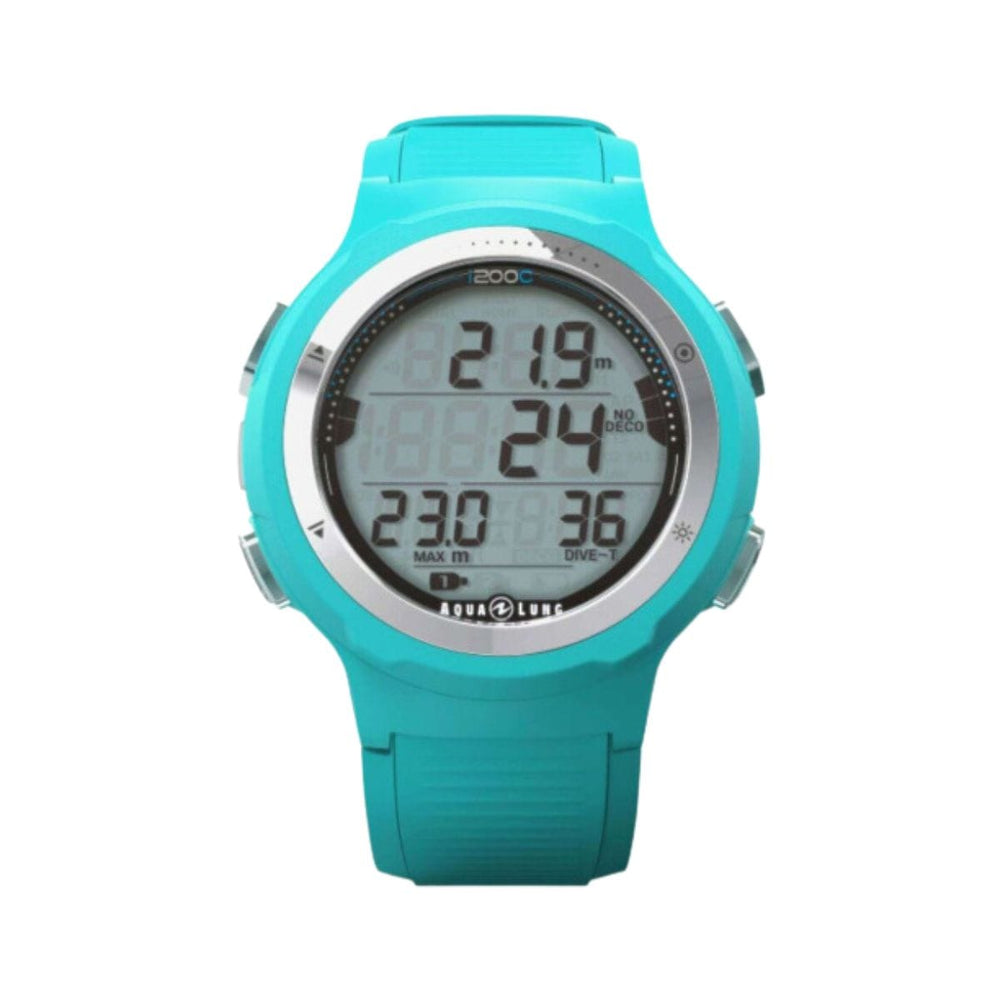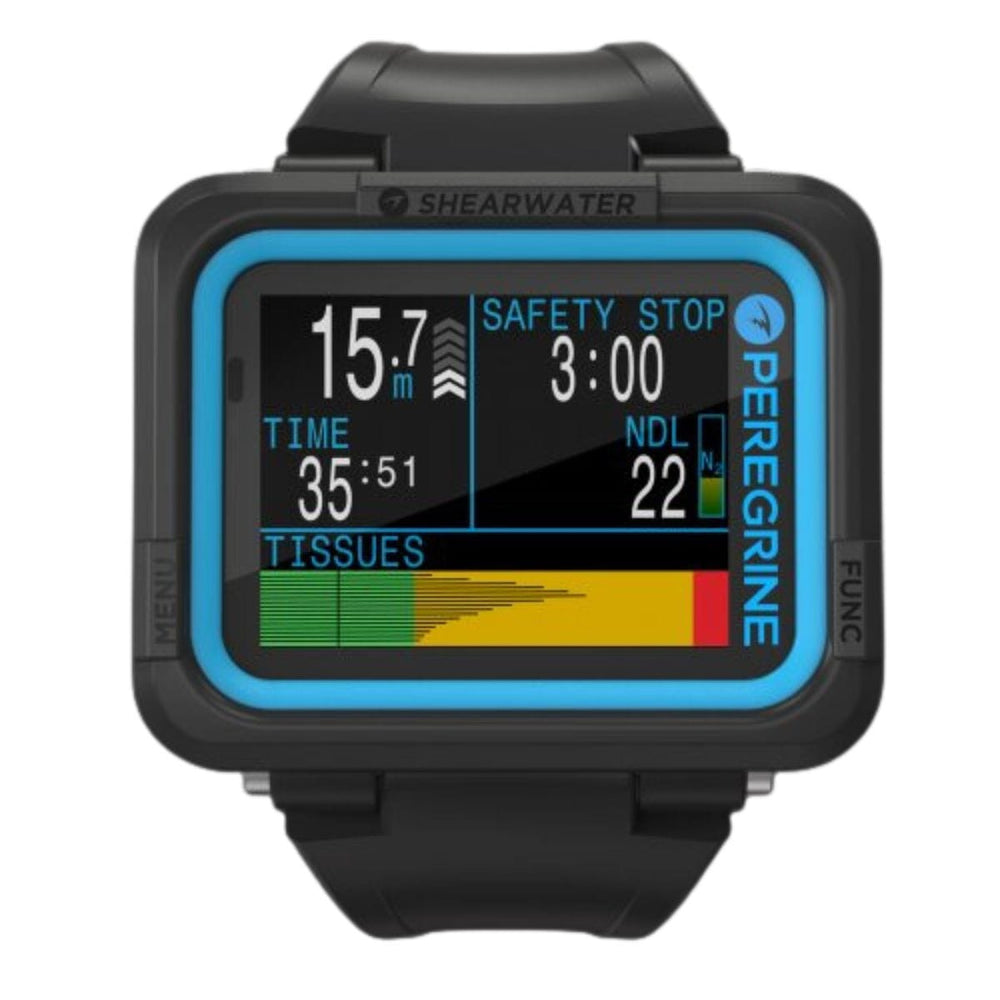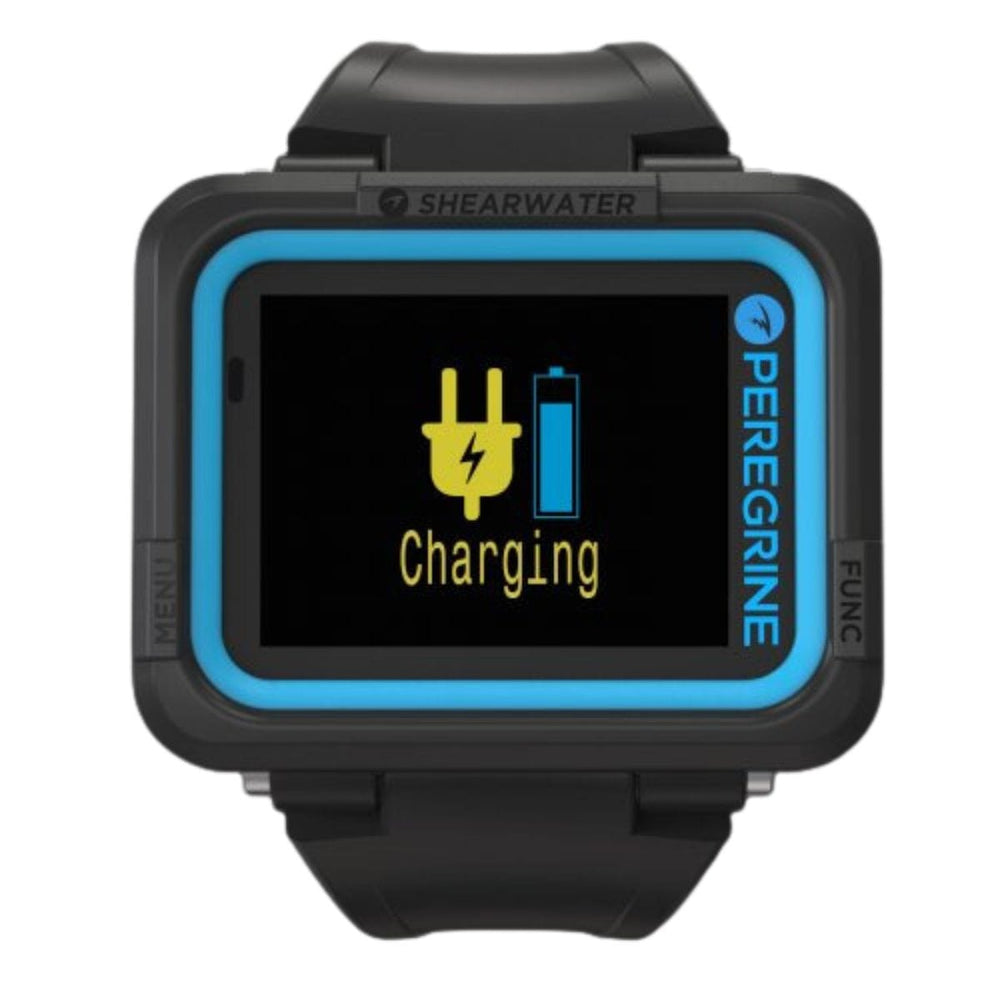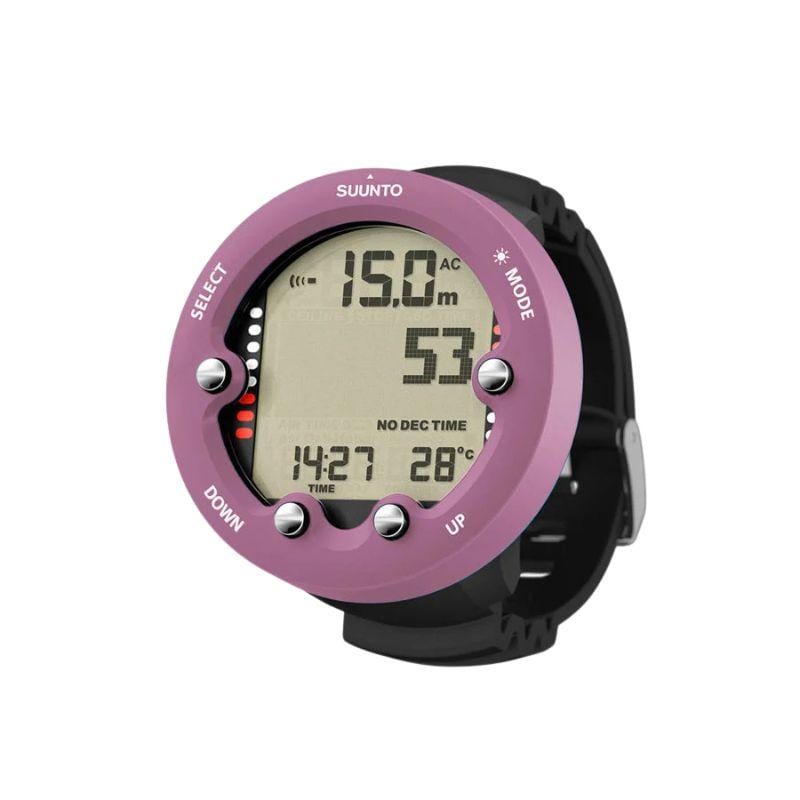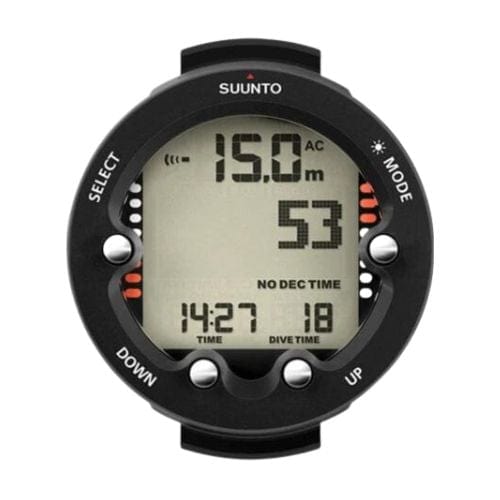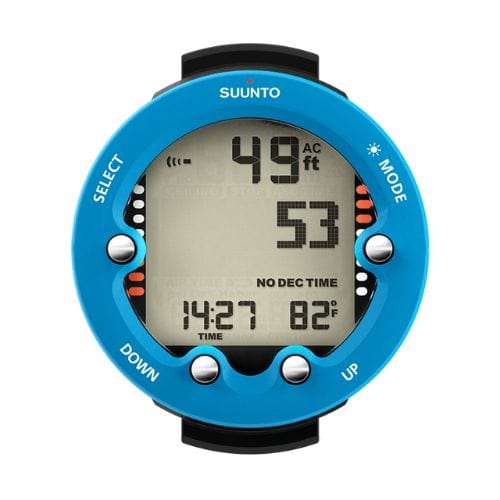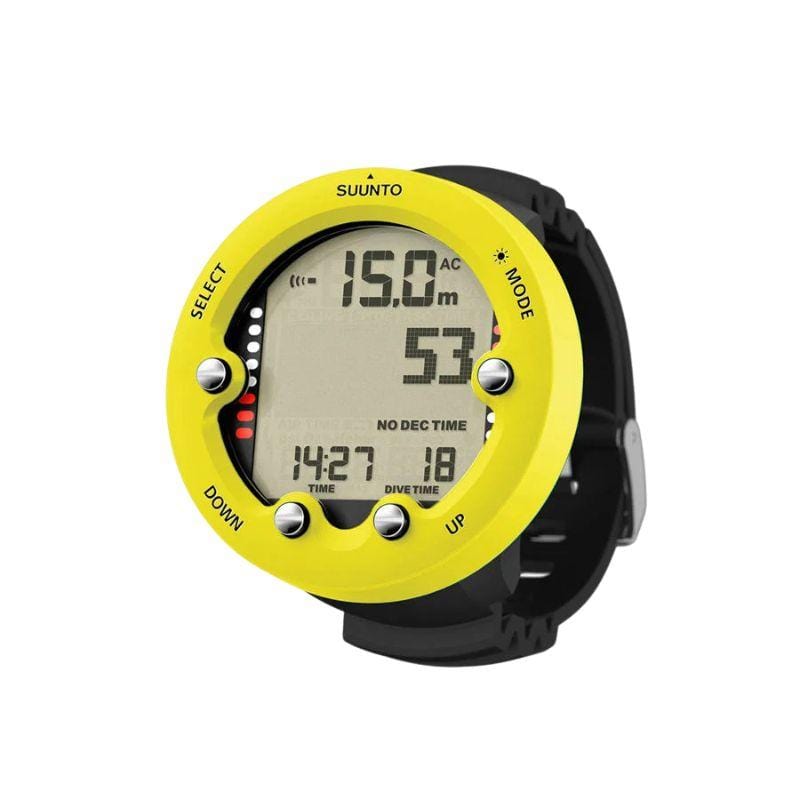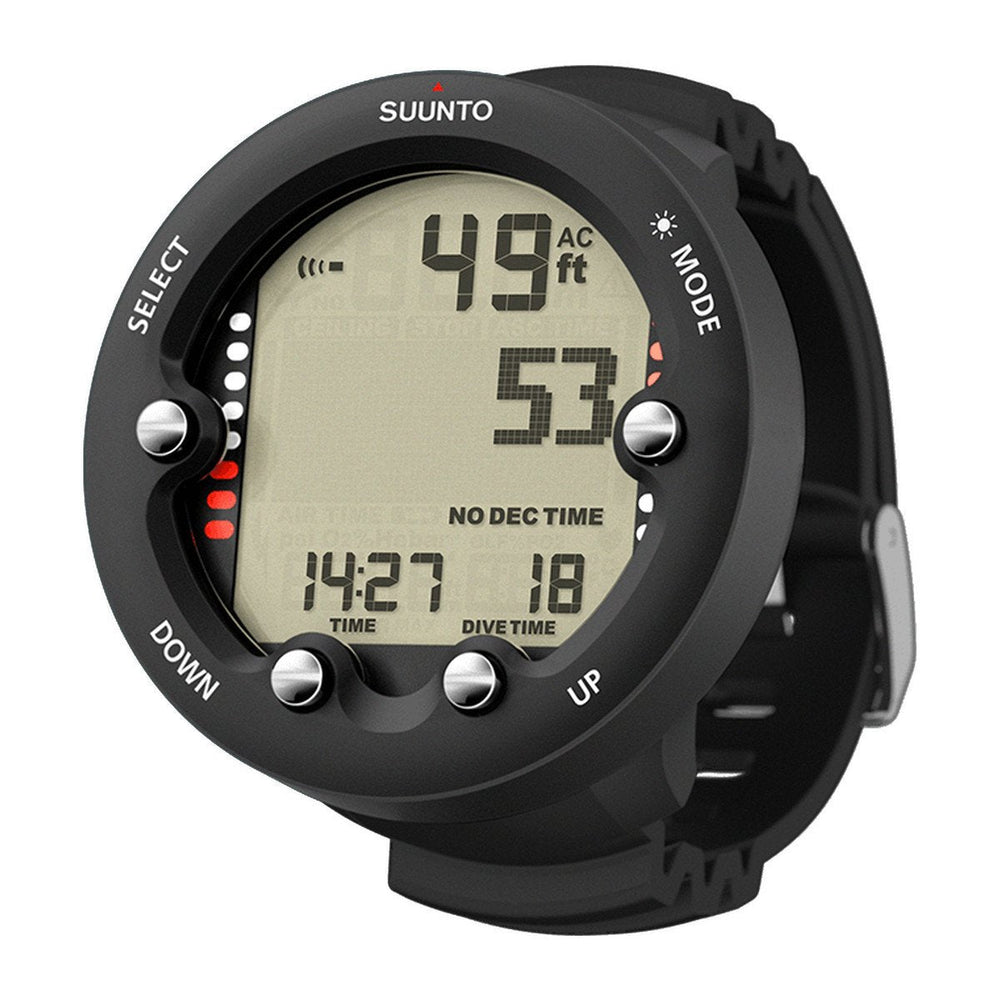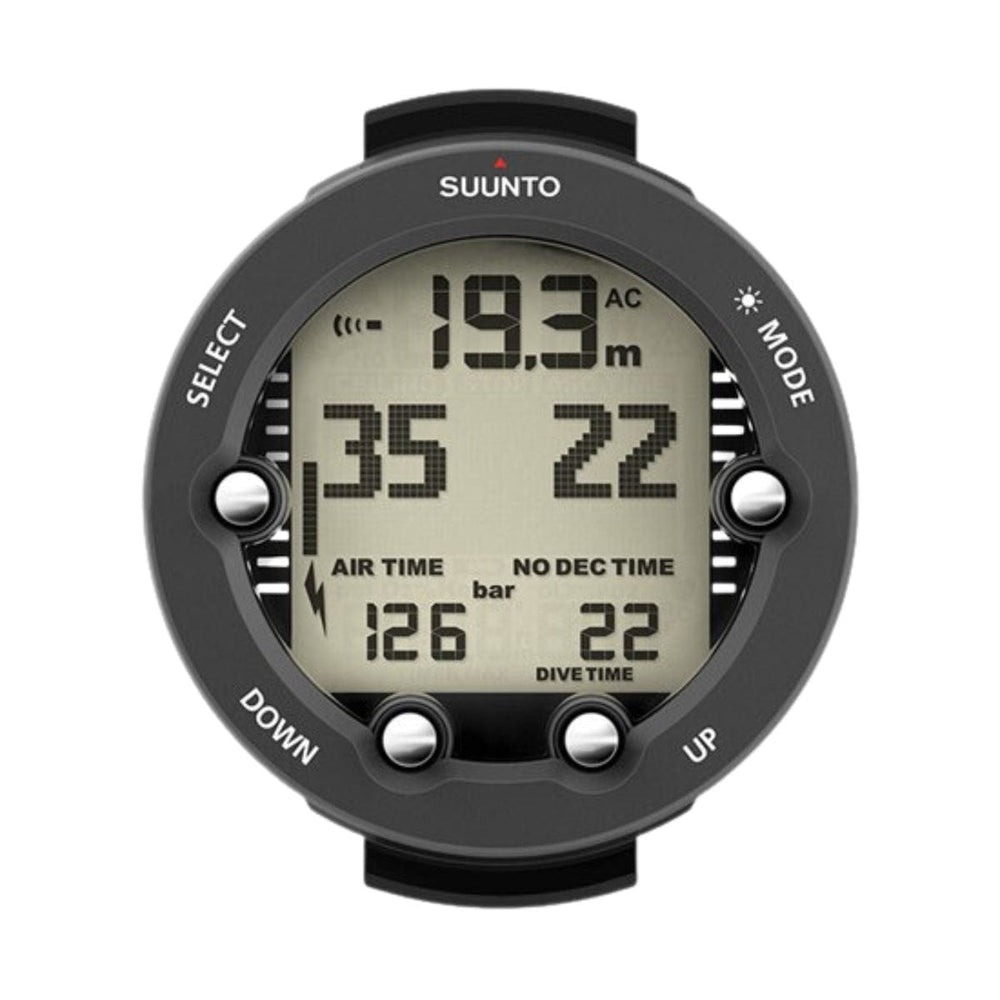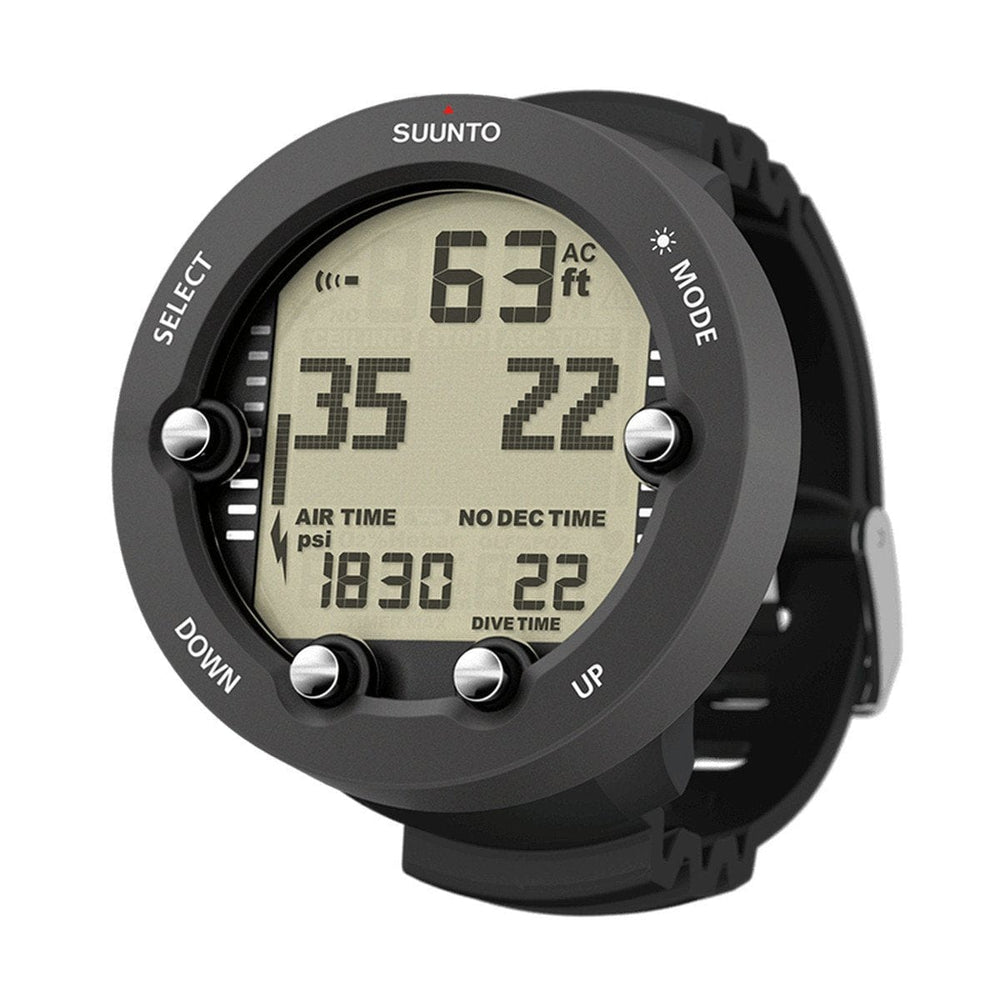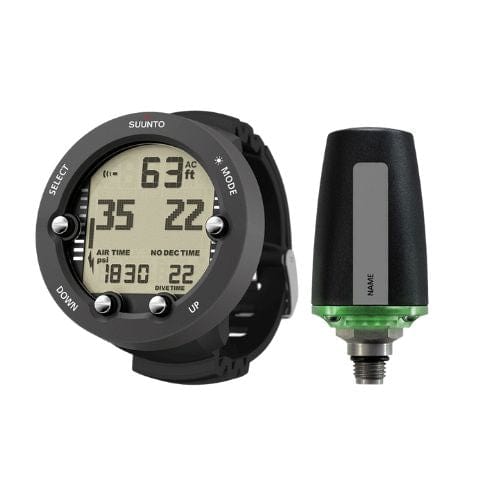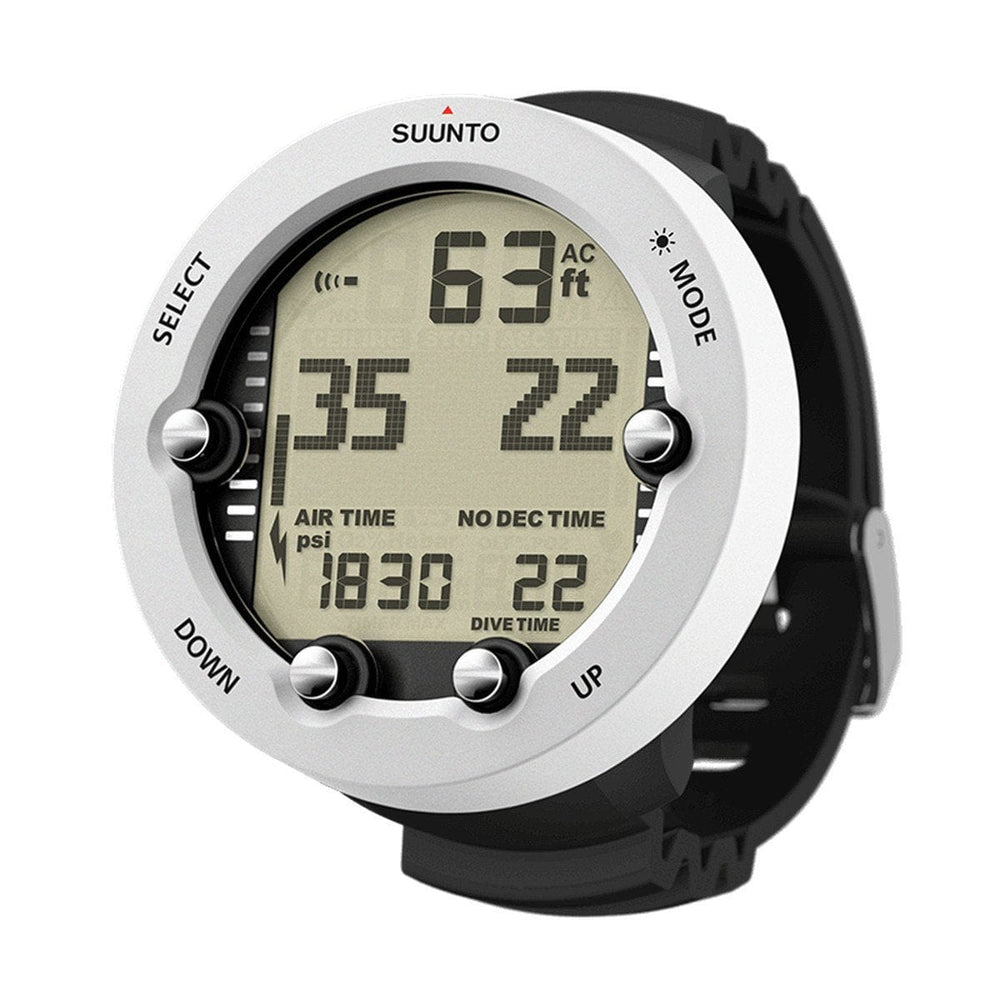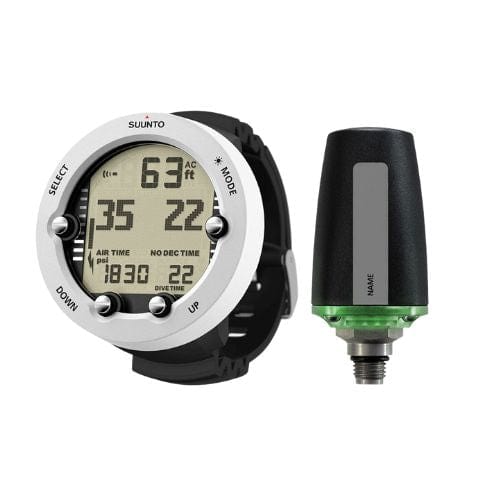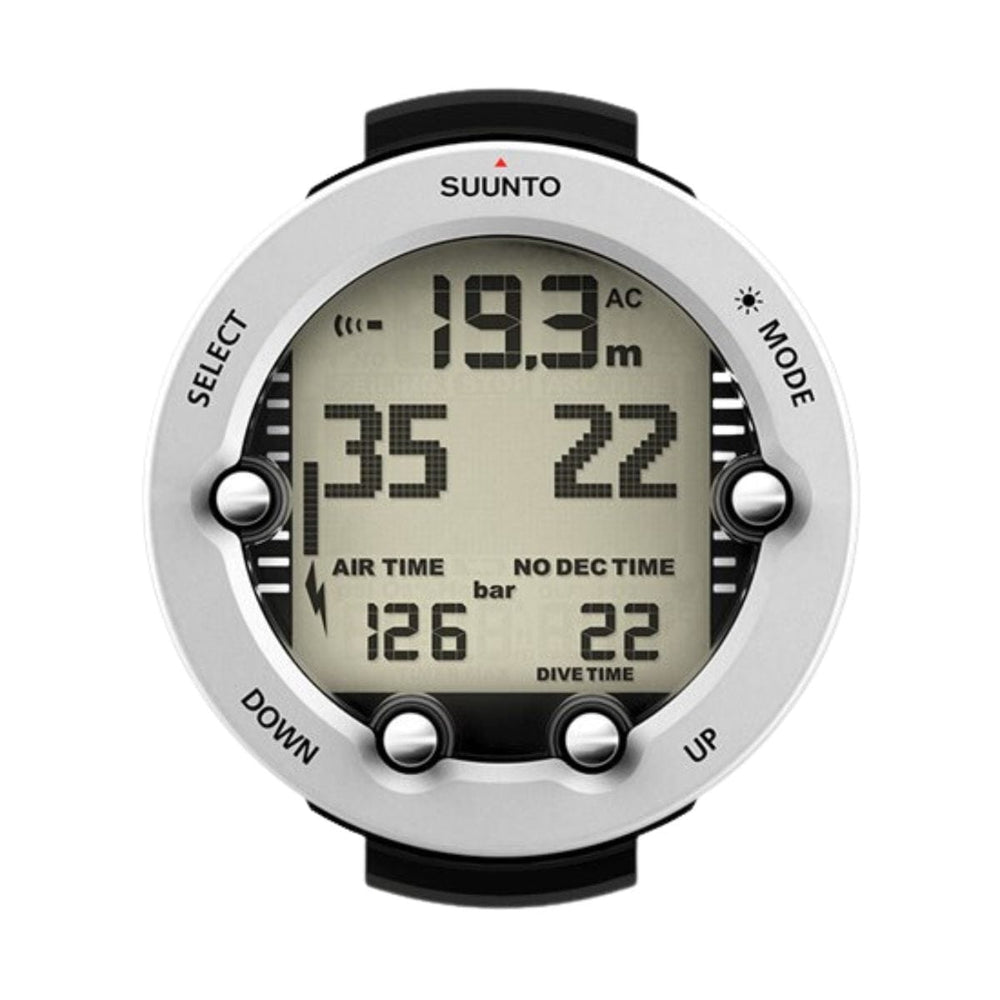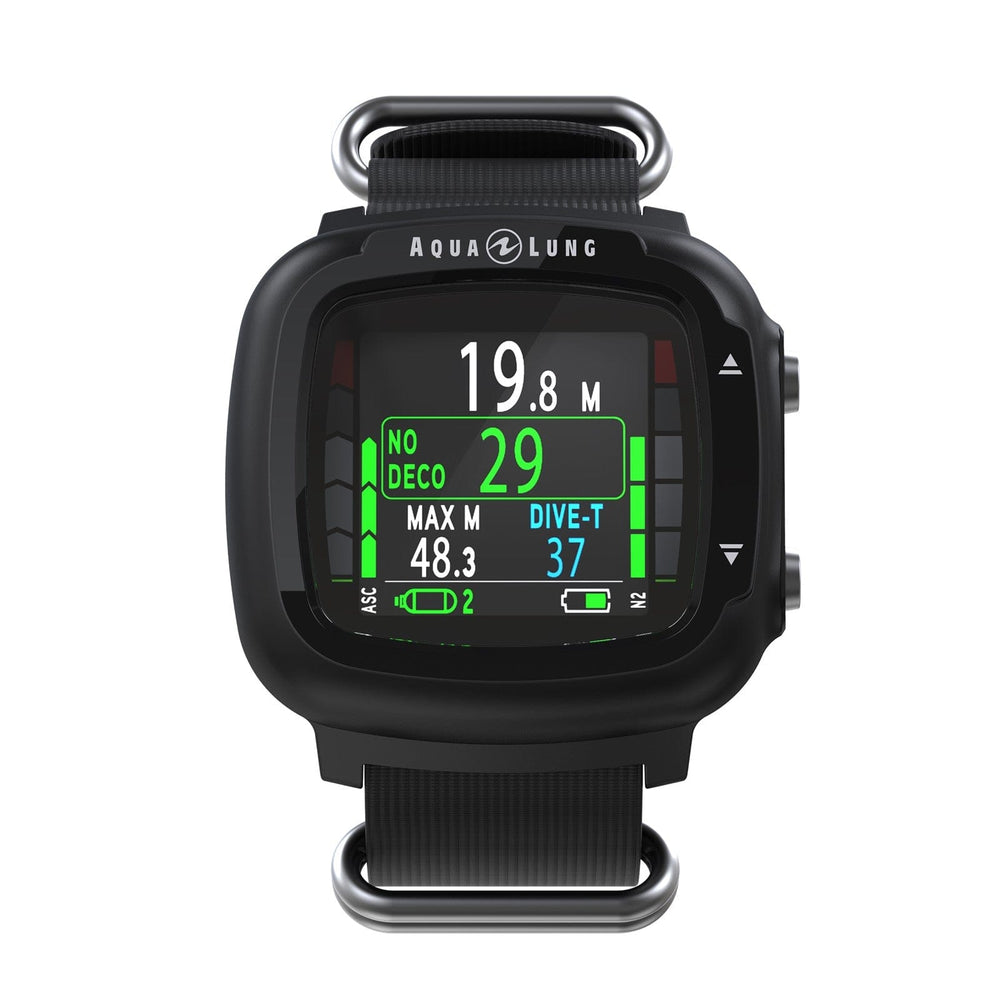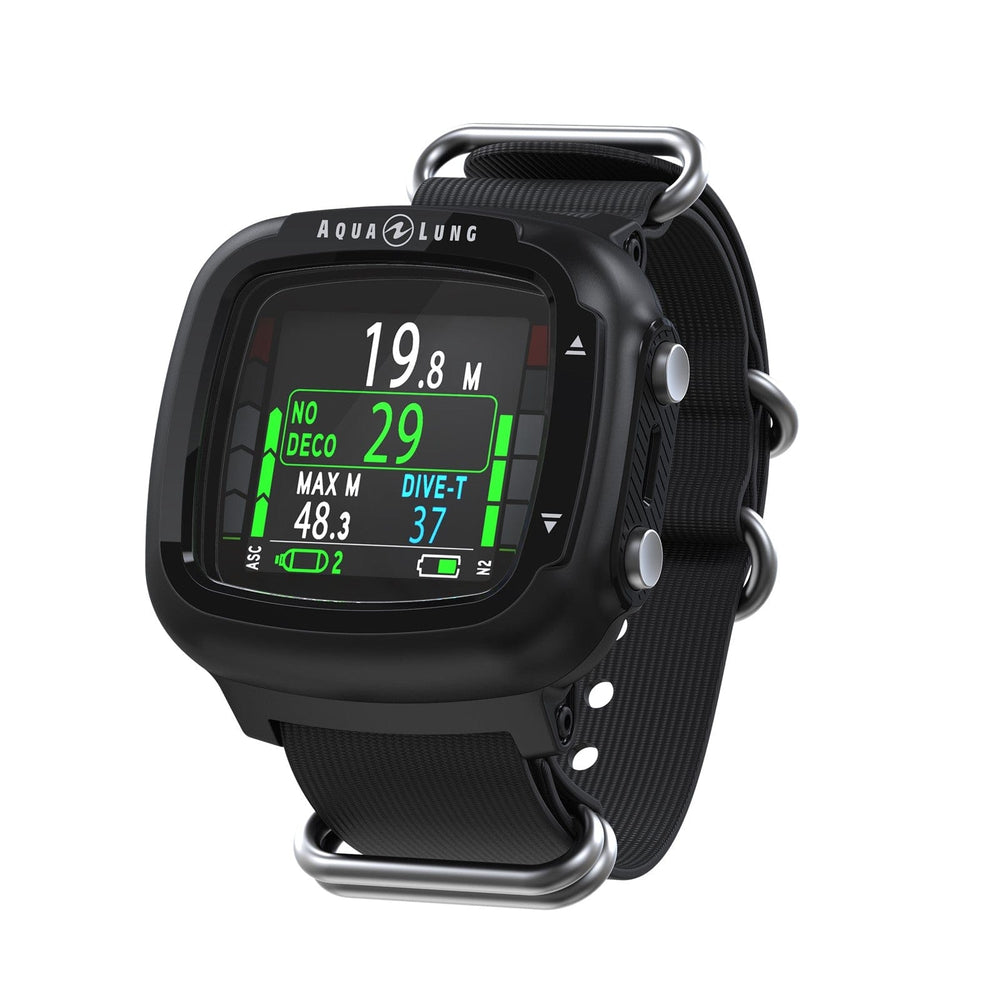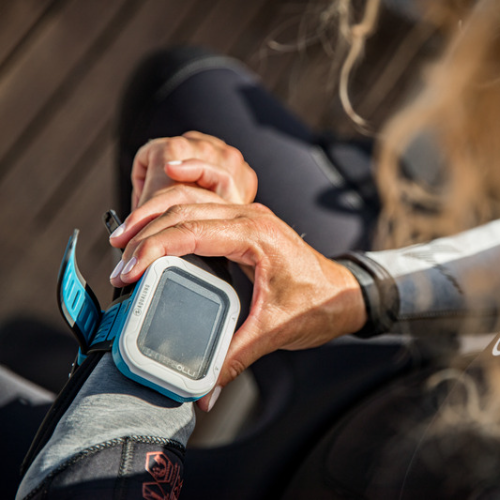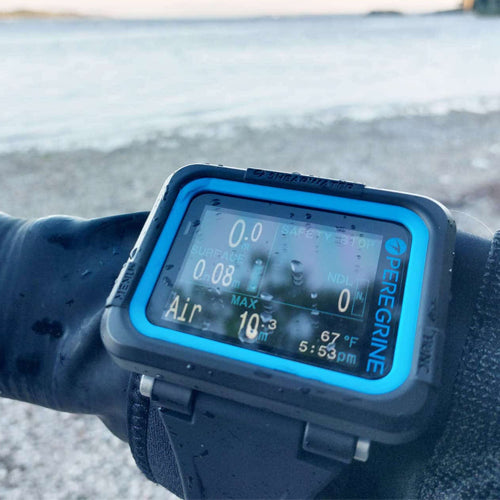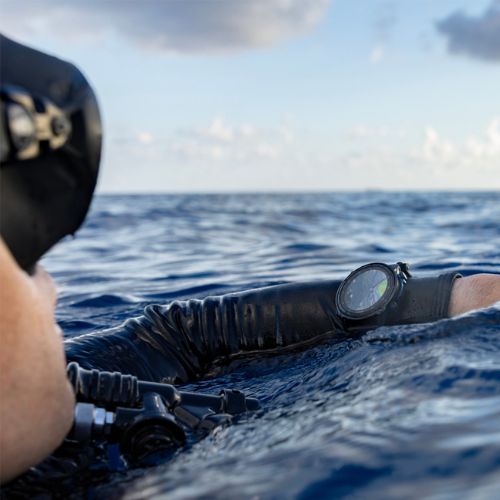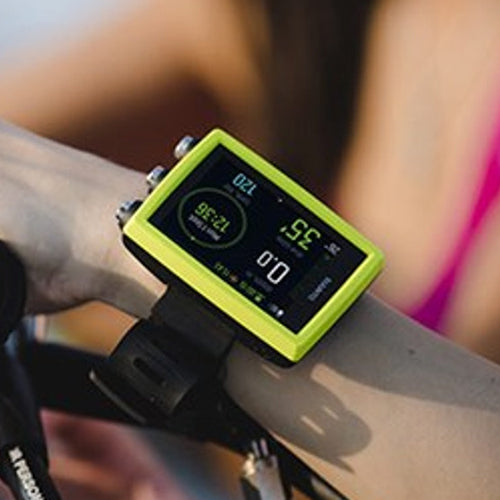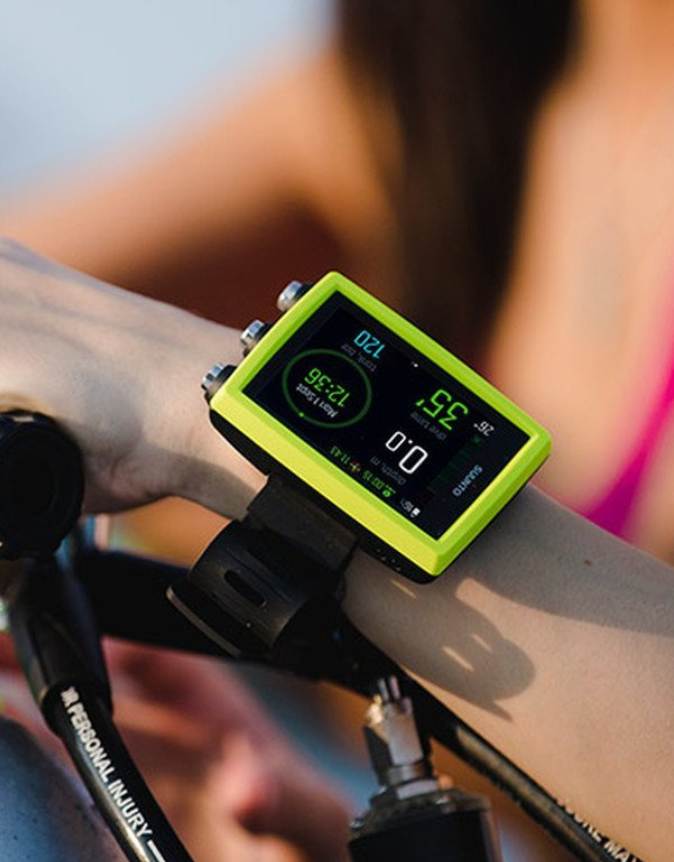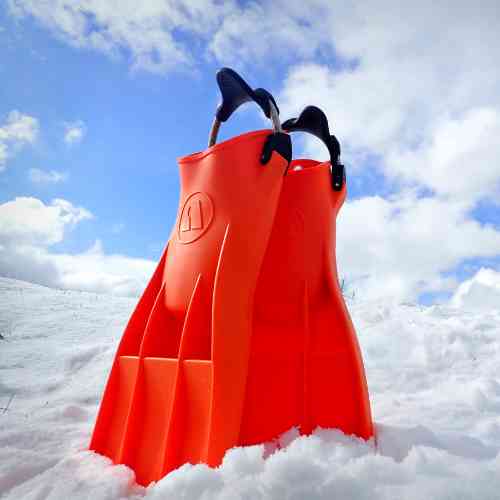We offer a full range of scuba and technical diving computers from SUUNTO, Shearwater, Aqualung, Garmin, Apeks and more. Our diving computers help you take control of your dive with reliable and immediate real time data keeping you safer in the water.
Scuba diving is an exciting and thrilling activity that allows you to explore the underwater world. However, it's important to remember that diving also comes with potential risks, especially when it comes to decompression sickness. To ensure a safe and enjoyable dive, it's essential to have an accurate understanding of your dive profile and to monitor it throughout the dive. This is where a dive computer comes in and one of the reasons we teach you how to use them when you learn to scuba dive.
What Does A Dive Computer Do?
A dive computer tracks dive information such as depth, time, and nitrogen loading. This is provided in real-time on your diving computer's display. They also monitor your ascent speed and required safety stop times. Top-of-the-range scuba diving computers also monitor your gas supply. These are just a few features that make dive computers a must for all divers.
One analogy that comes to mind is driving a car without a fuel gauge. Without it, you'd have to estimate how much fuel is left in the tank and make it to a gas station before running out. If you guess incorrectly, you could be driving at a high speed and suddenly come to a stop in the outside lane, which is not an ideal situation.
Dive Computers Are Required In Certain Dive Destinations
Many countries, including the Maldives, require scuba divers to wear a dive computer as a mandatory safety measure. Most reputable dive centers also mandate the use of a dive computer, particularly for dives deeper than 18 meters. Some of the most popular and trusted dive computer brands are Suunto dive computers and Shearwater dive computers, which are widely used and recognized for their accuracy, reliability, and ease of use. Whether you are a novice or experienced diver, using a Suunto or Shearwater dive computer can help ensure a safe and enjoyable dive.
Not wearing a dive computer can significantly increase your risk of decompression illness (DCI). While traditional dive tables may seem like a viable alternative, they are rarely used nowadays, with many divers opting to follow their guide or relying on guesswork, leaving their safety to chance. Additionally, dive tables are often unable to account for multilevel diving or provide accurate information, resulting in shorter dive times. A dive computer, on the other hand, offers a more reliable and precise calculation of dive parameters, allowing for longer and safer dives. This is why investing in a dive computer, such as those offered by Aqualung, Garmin or Shearwater, is essential for any scuba diver looking to maximize their safety and dive experience.
Is It Better To Buy Or Rent A Dive Computer?
Despite its potential life-saving benefits, a dive computer doesn't have to be a costly investment. In fact, you can purchase a reliable and functional dive computer for under £200. While renting a dive computer may seem like a cost-effective option at around £10 - £15 a day, if you plan on diving more than once a year, it may be worthwhile to invest in your own device. Owning your own dive computer not only saves you rental costs in the long run, but also allows you to become familiar with the device's features and settings, ensuring that you can use it to its full potential. Whether you choose any of the best diving computer brands on the market, investing in your own device can help you stay safe and informed during your dives.
Dive computers generally come in two types: wrist style computers and watch-sized computers. Wrist style computers are larger, more affordable, and offer a larger display screen, while watch-sized computers can be worn like a watch, making them more compact and convenient.
So the answer to the question, do I need a dive computer is YES!!!!

